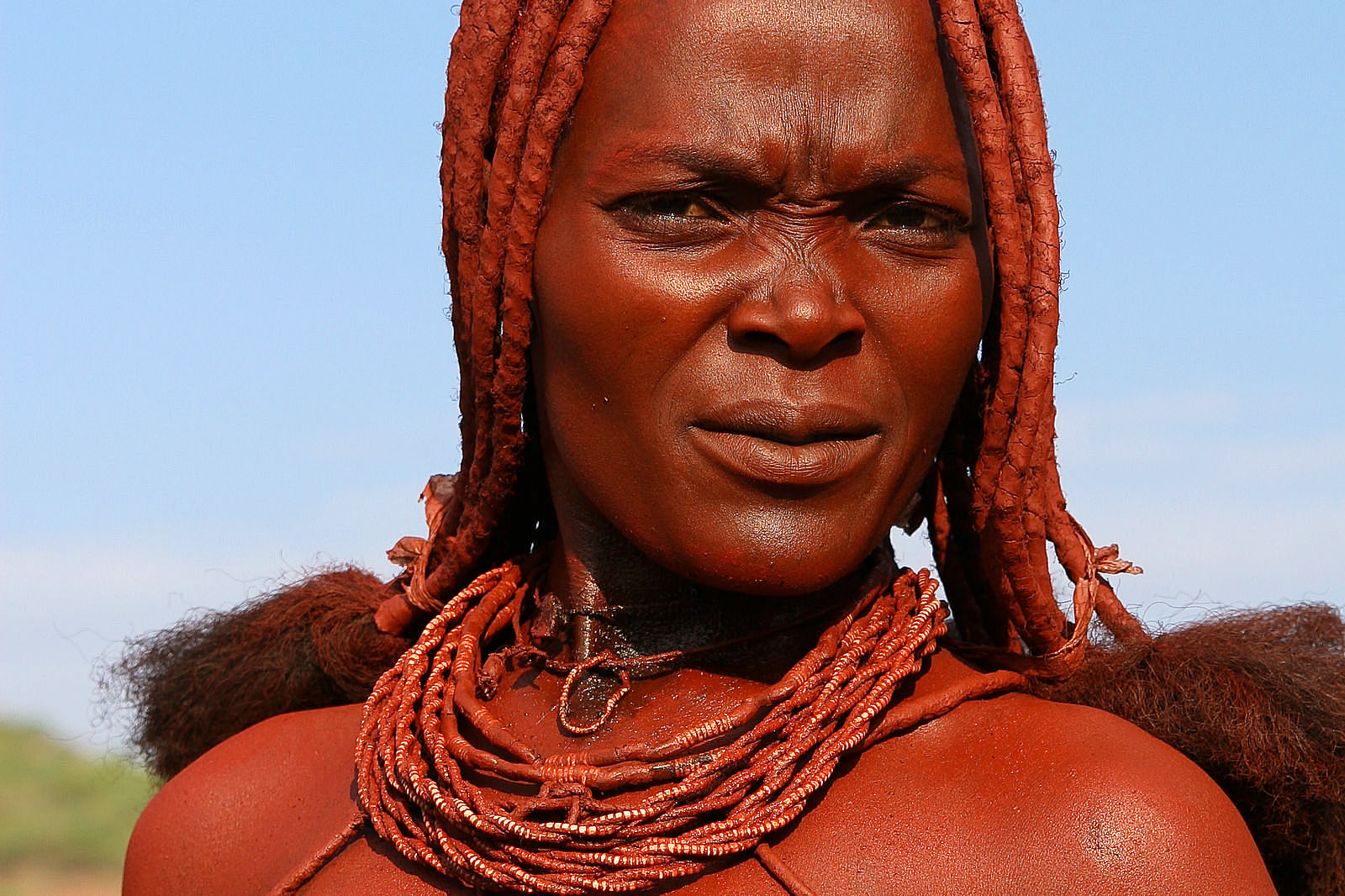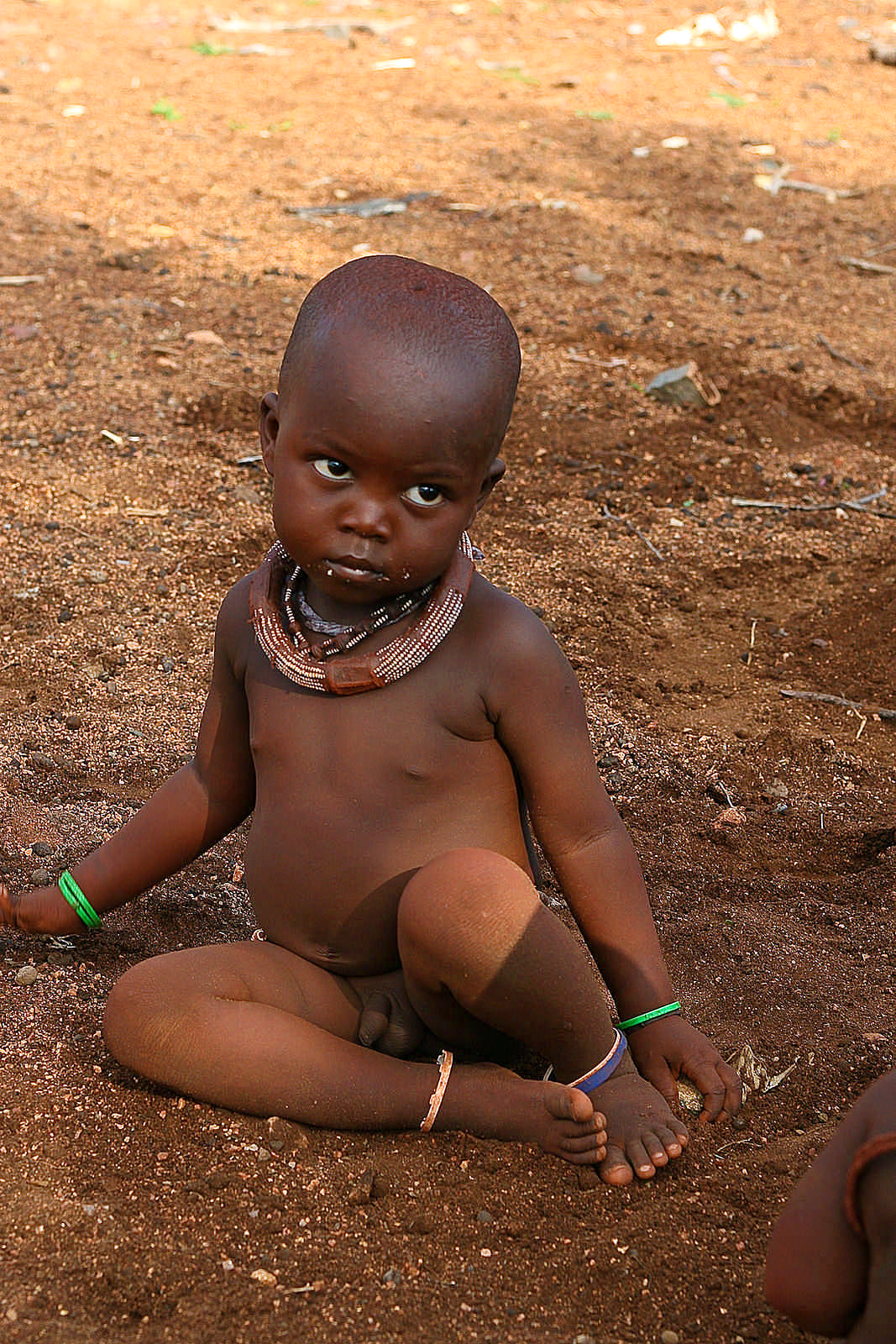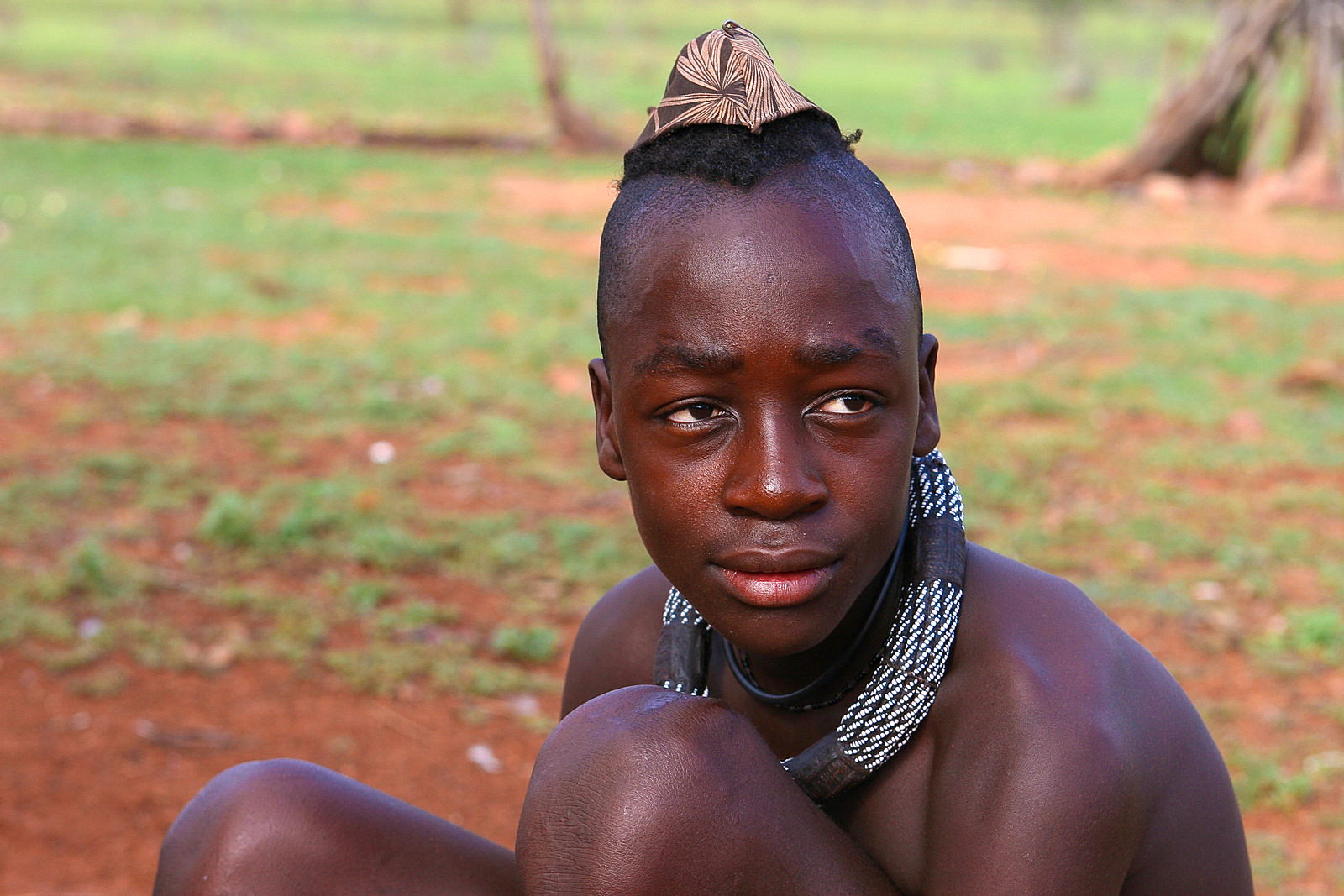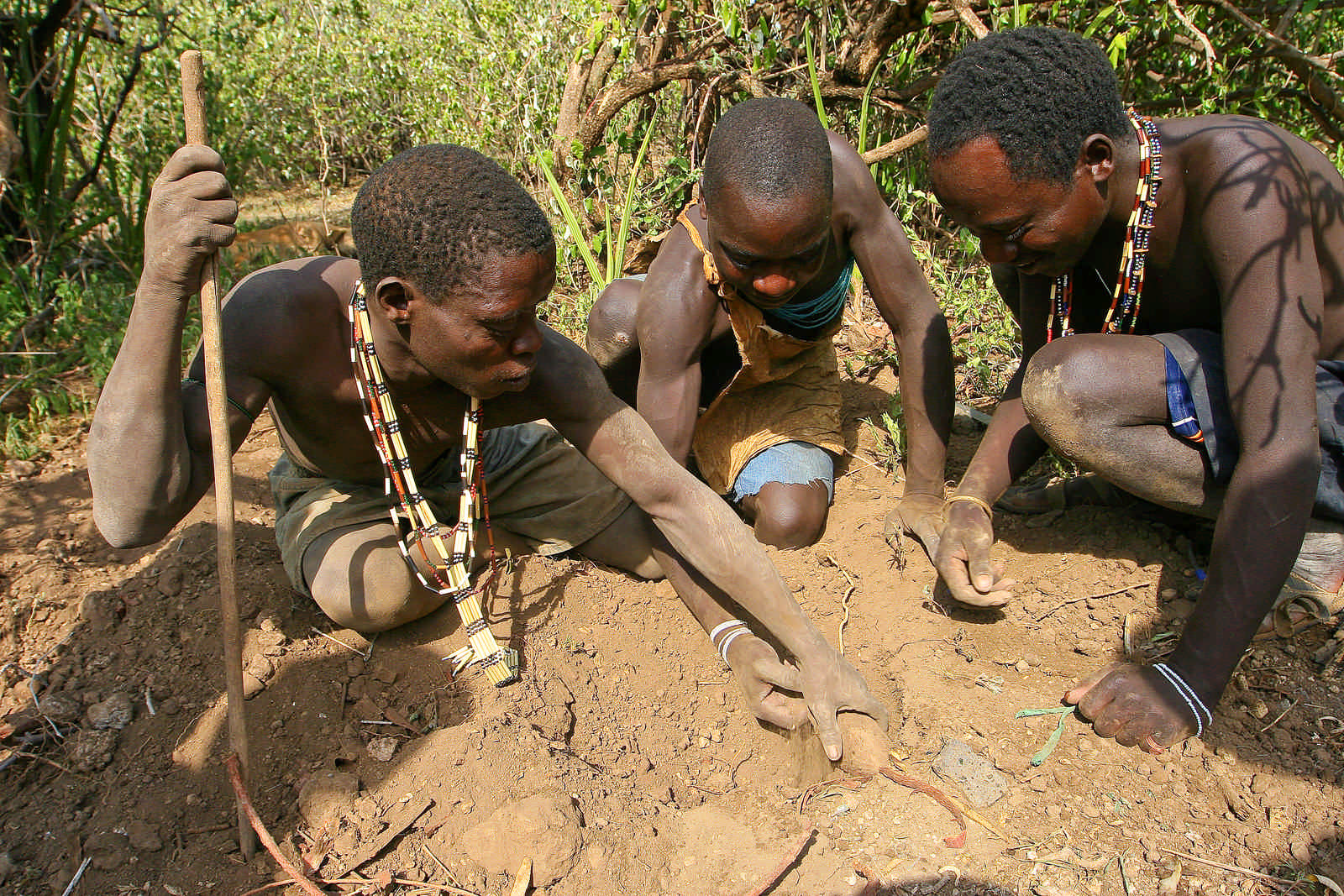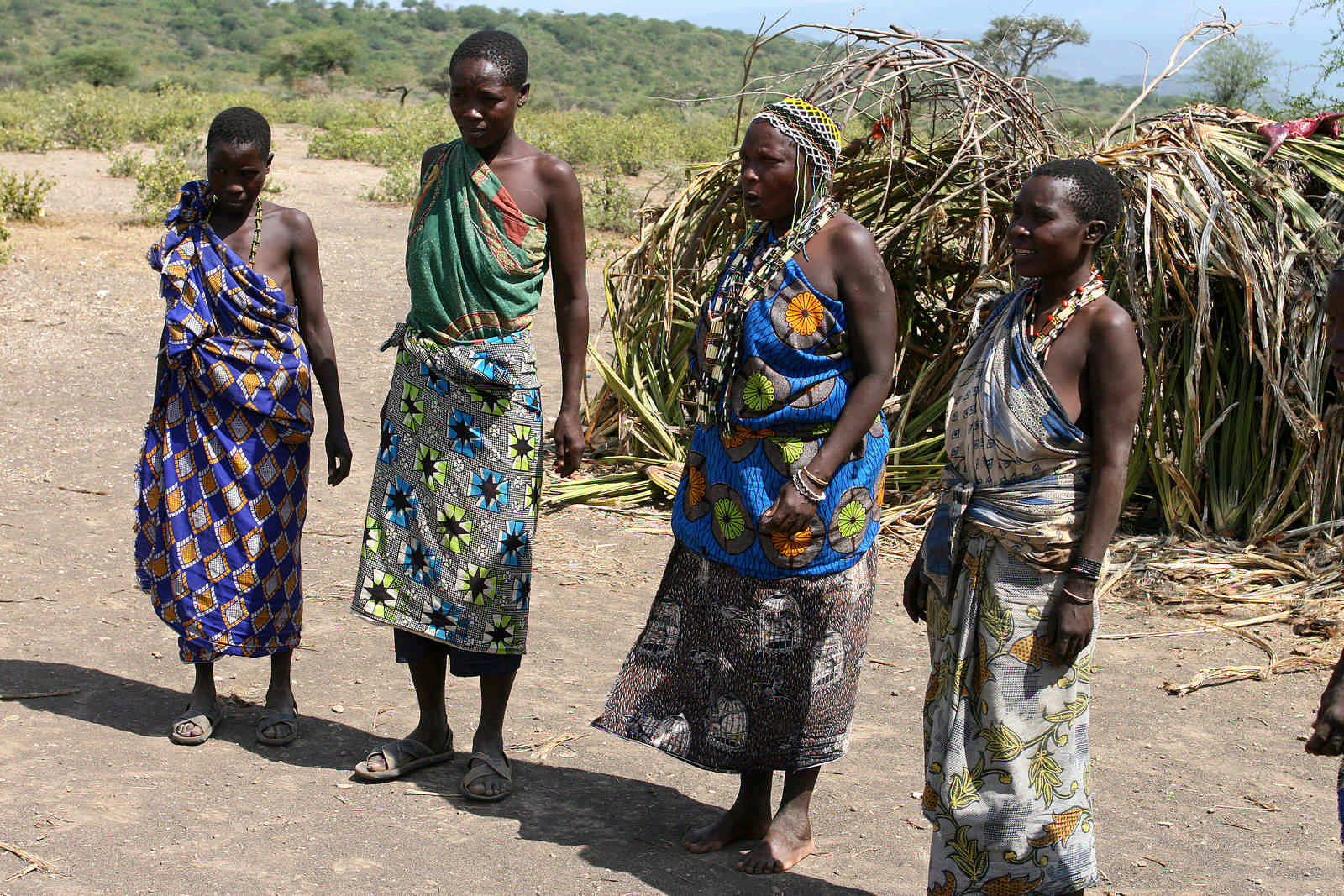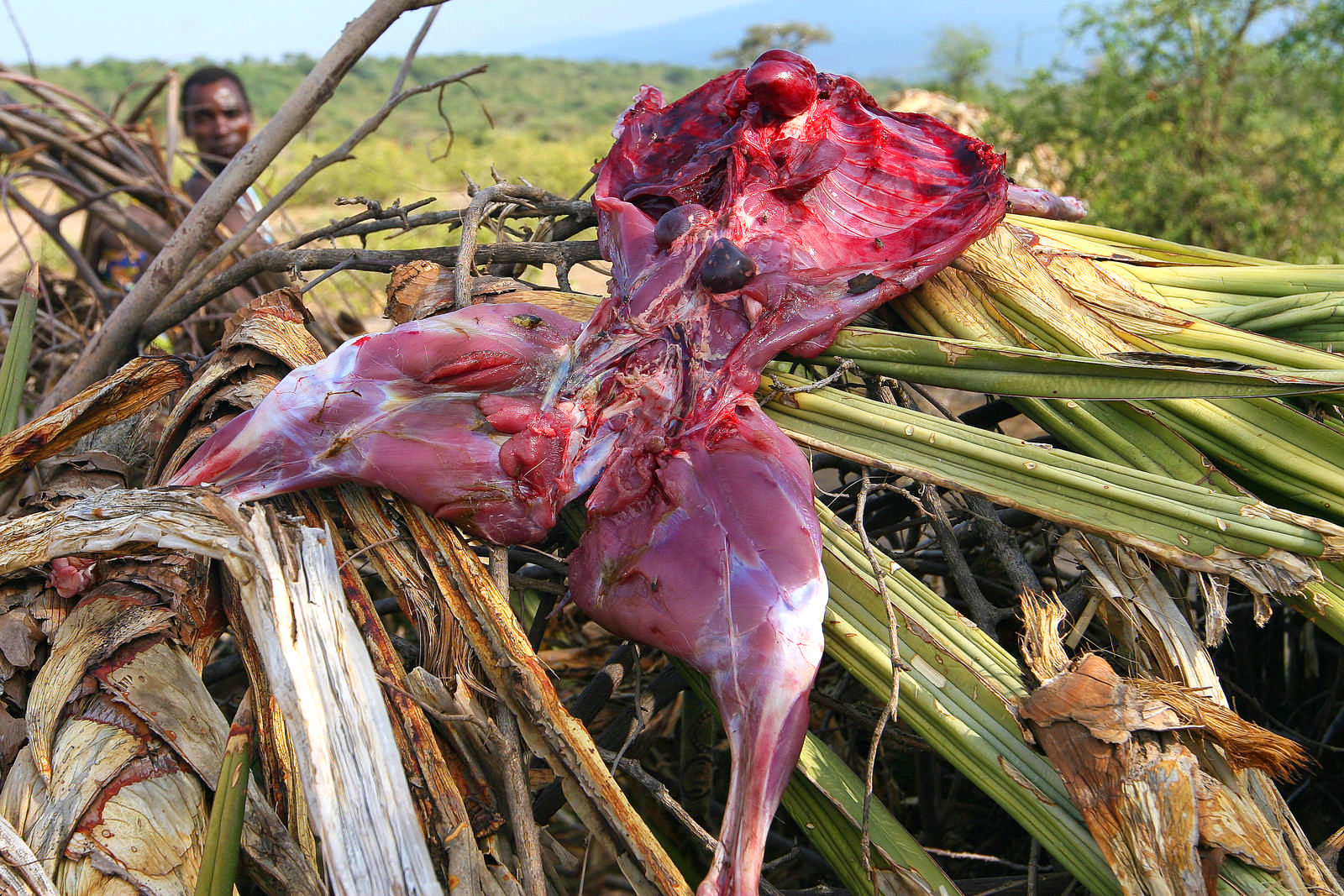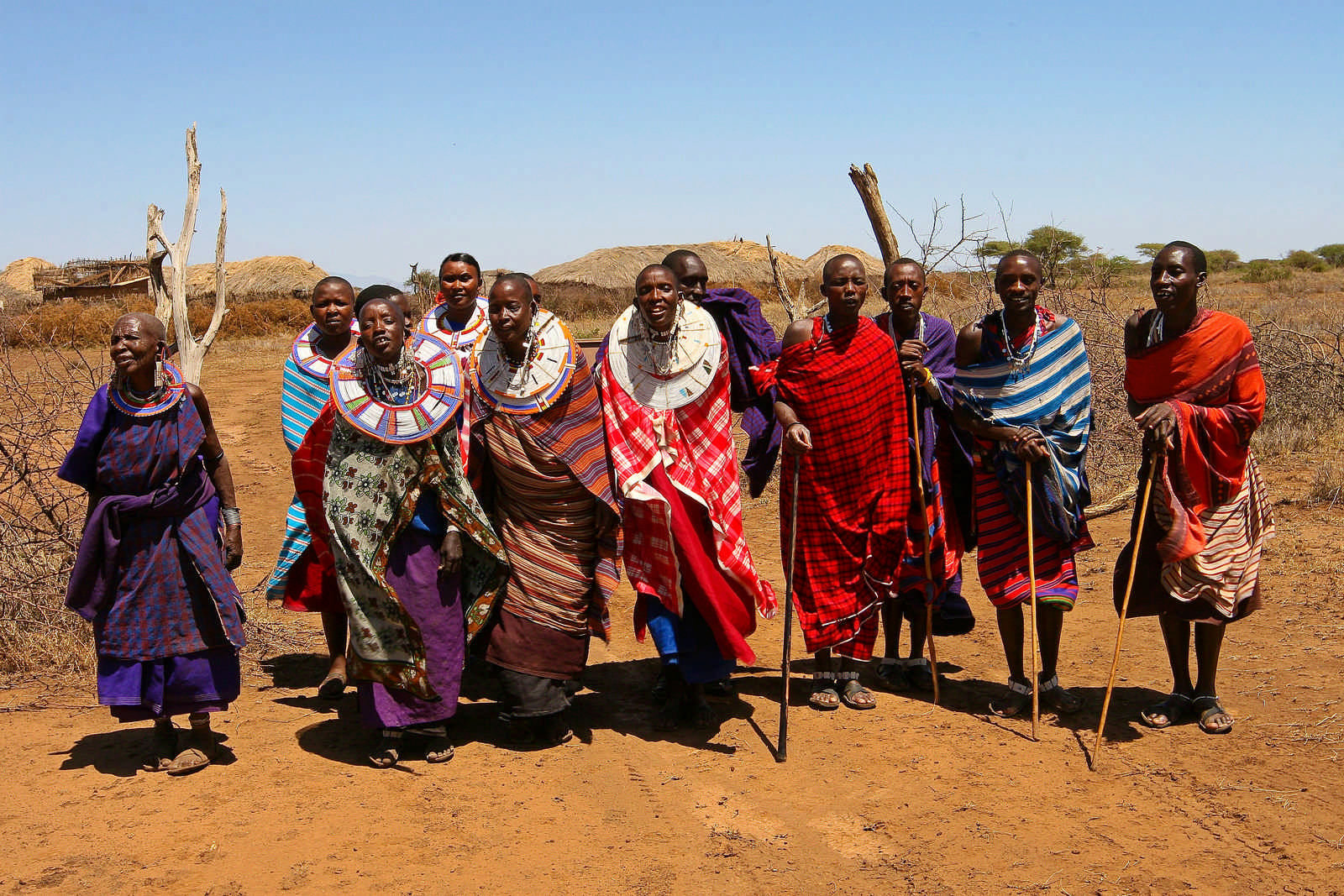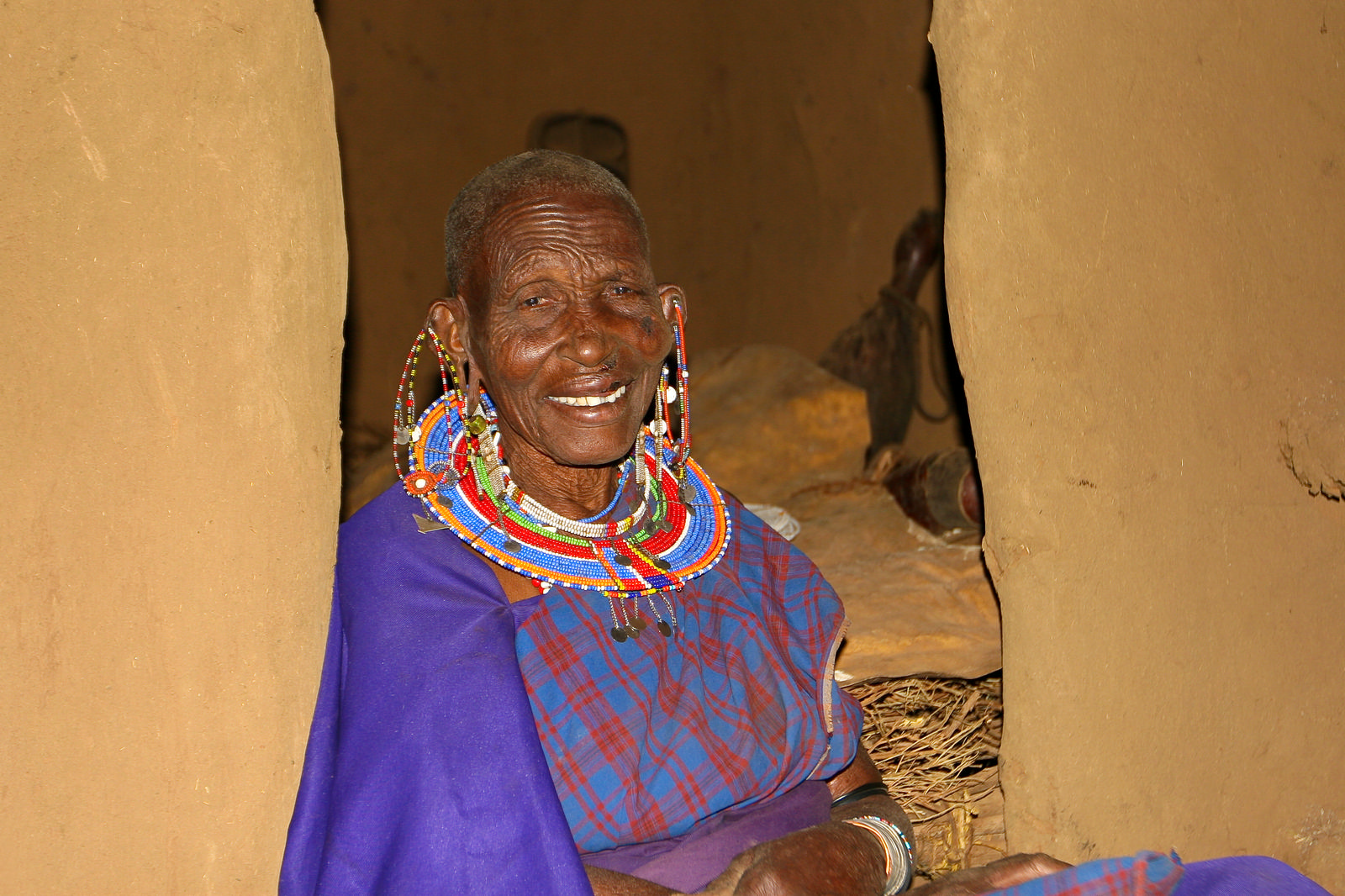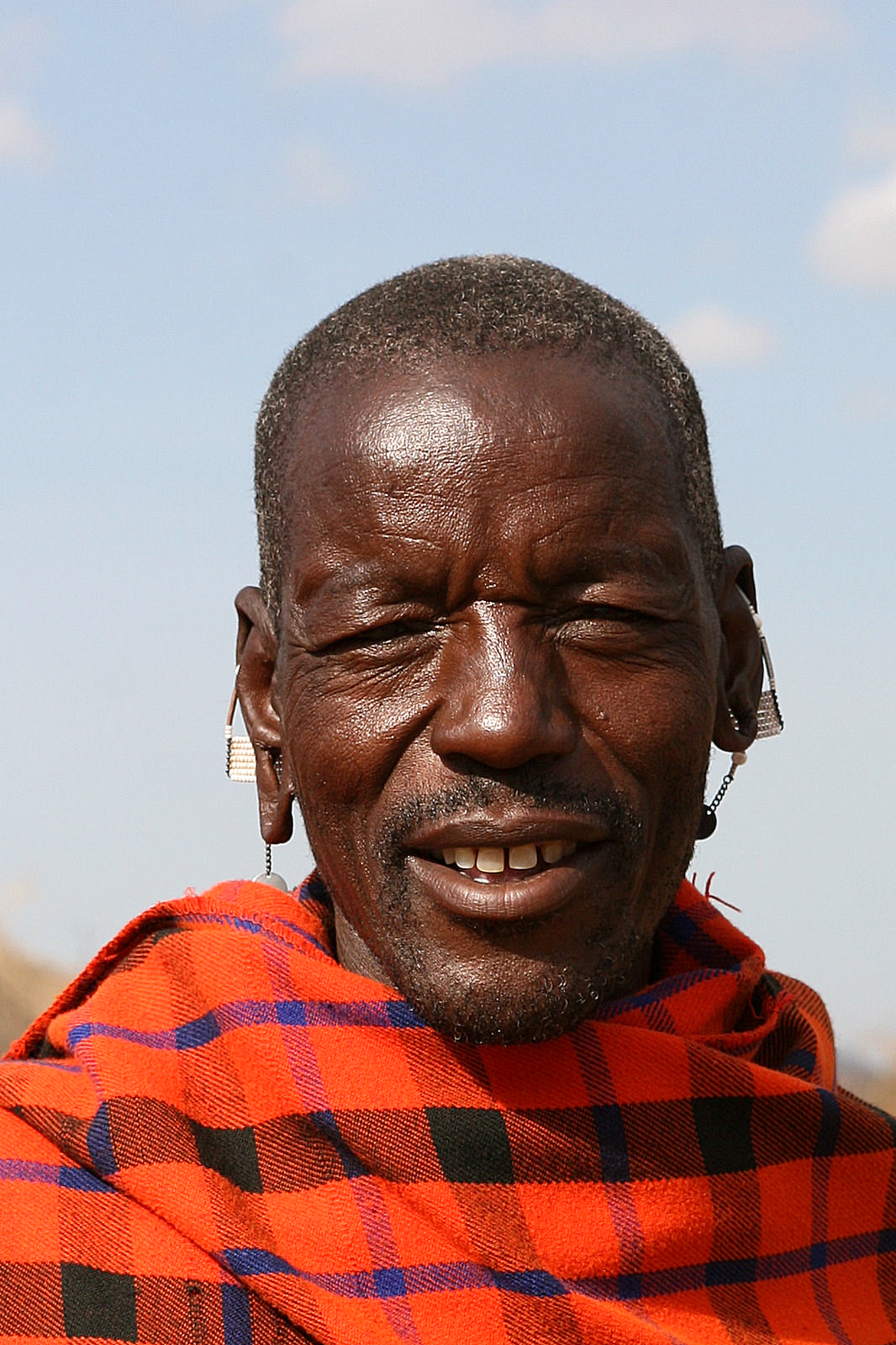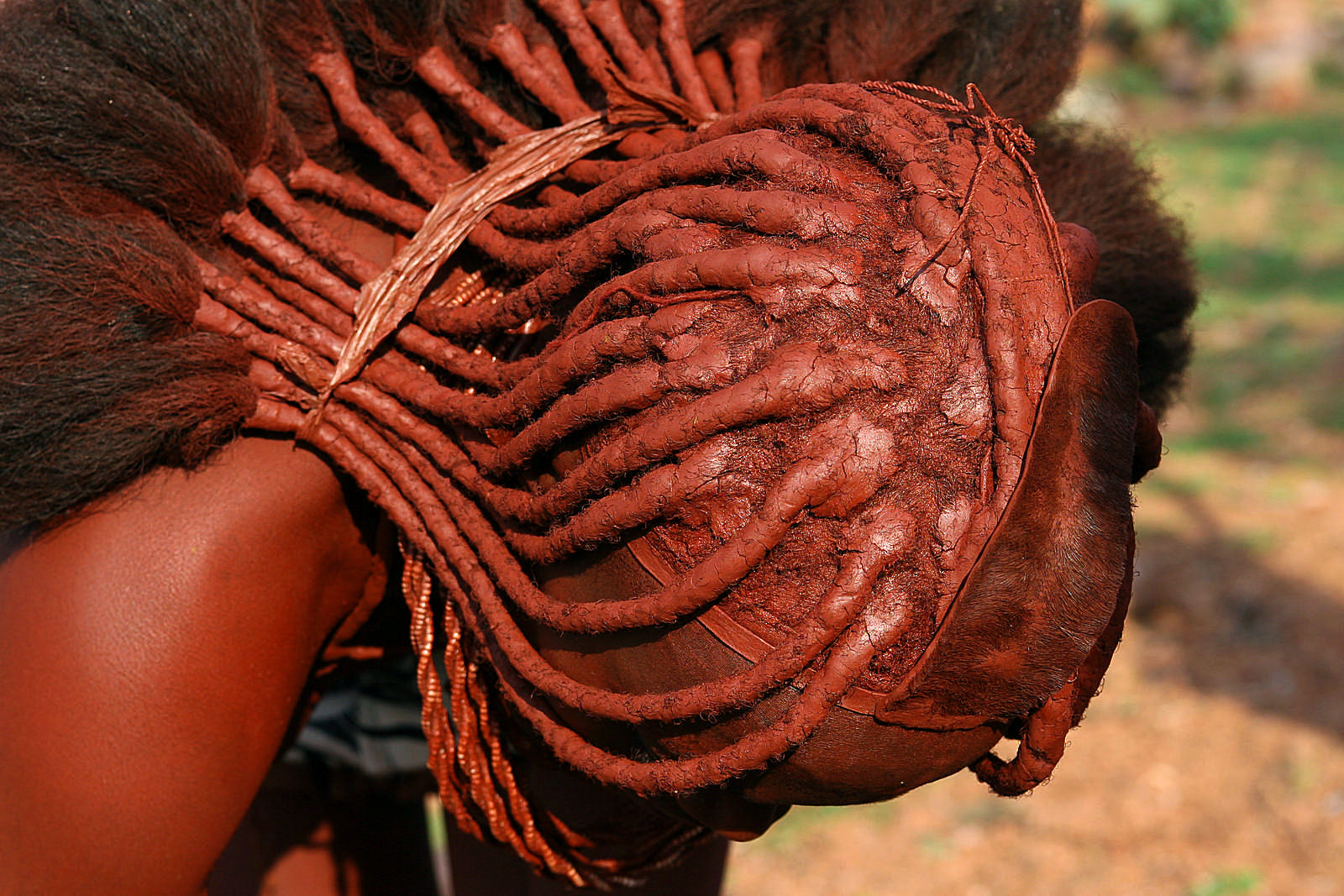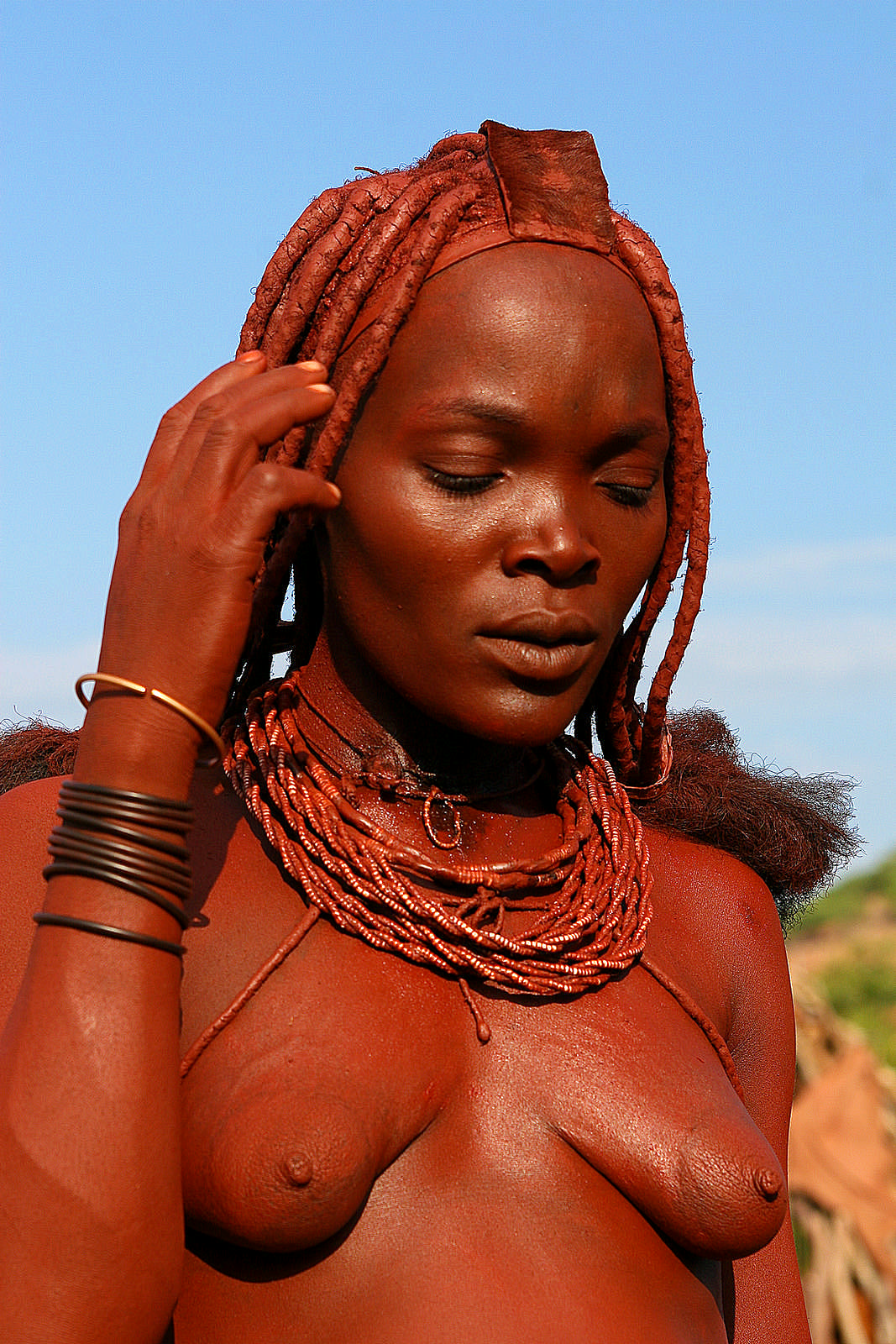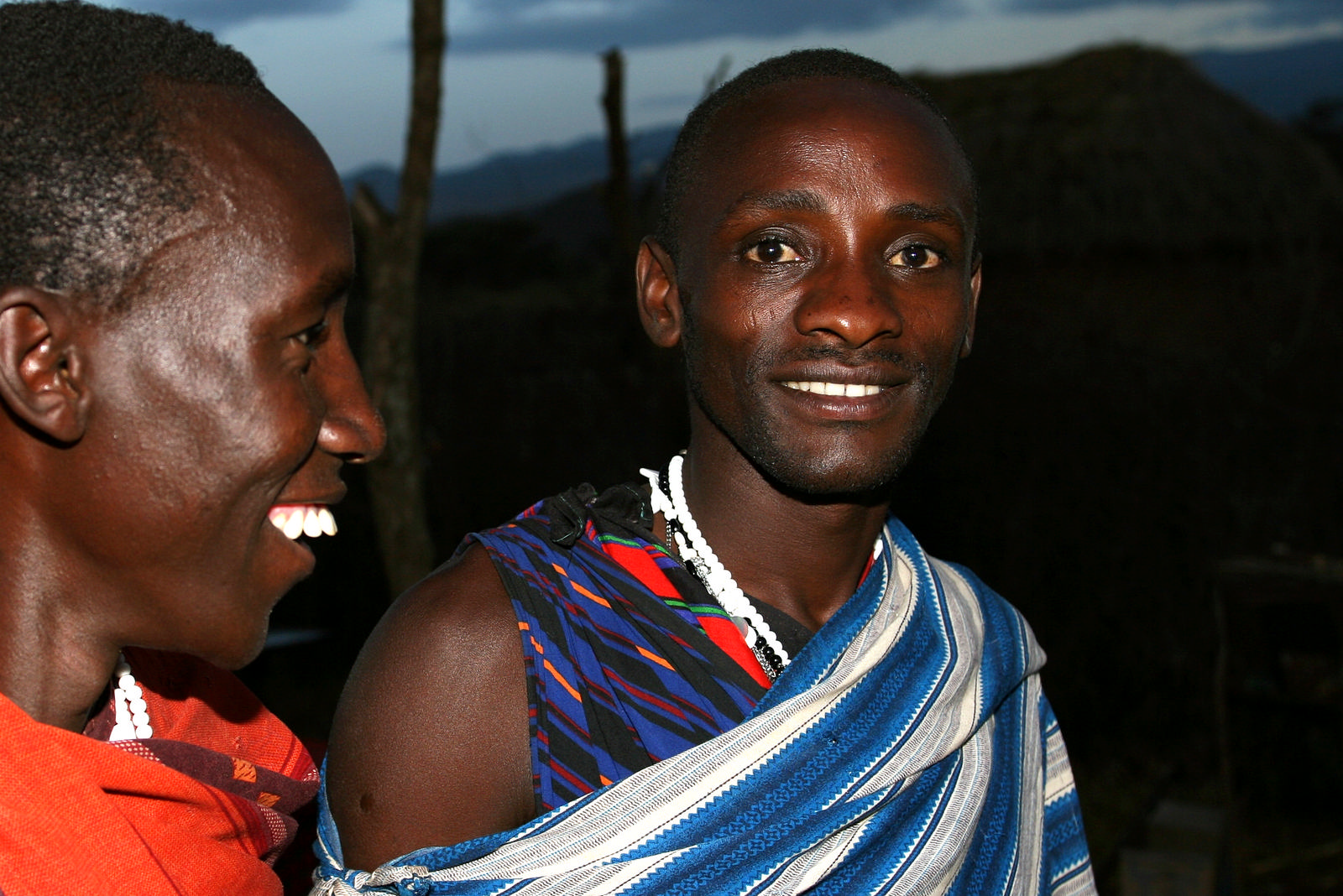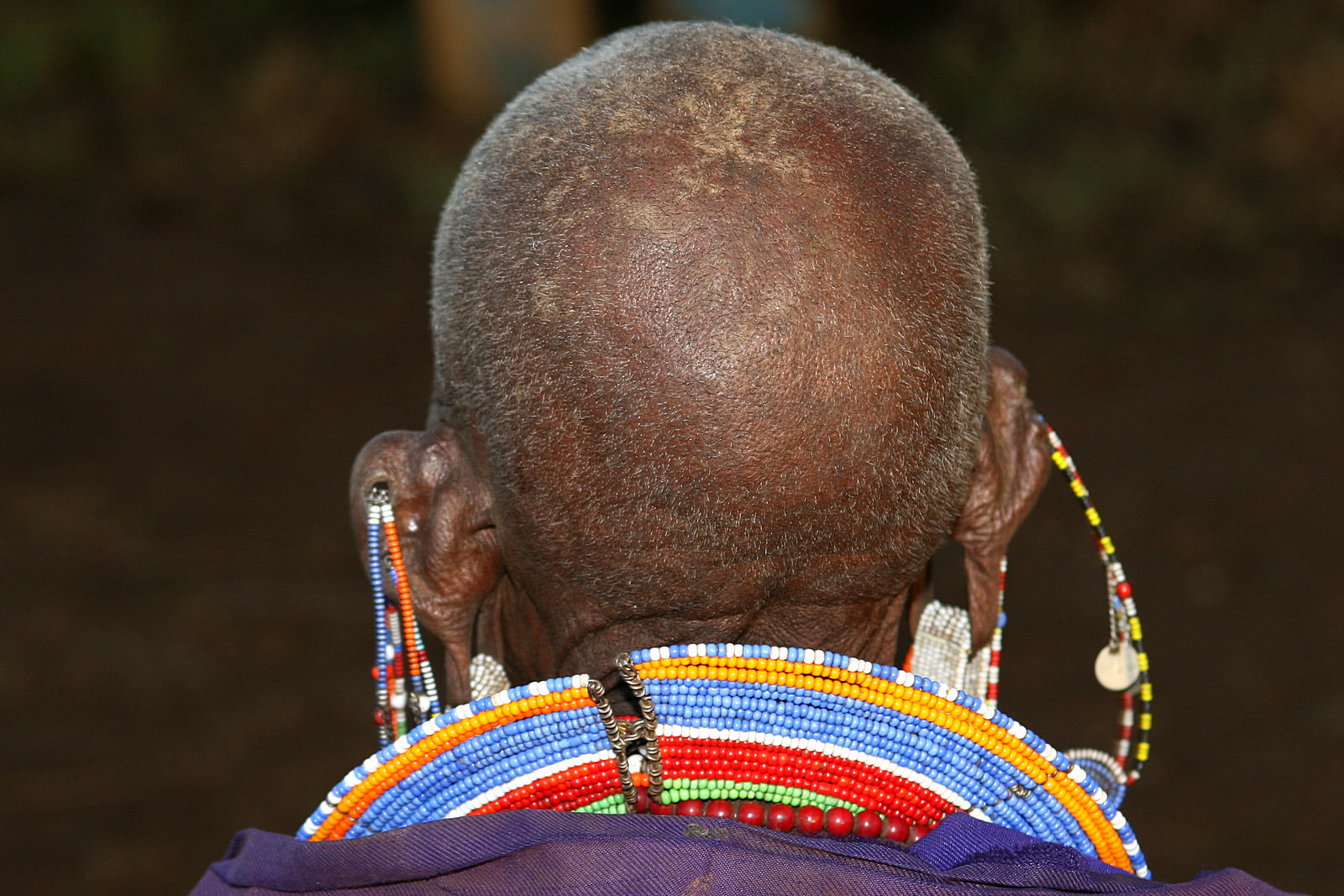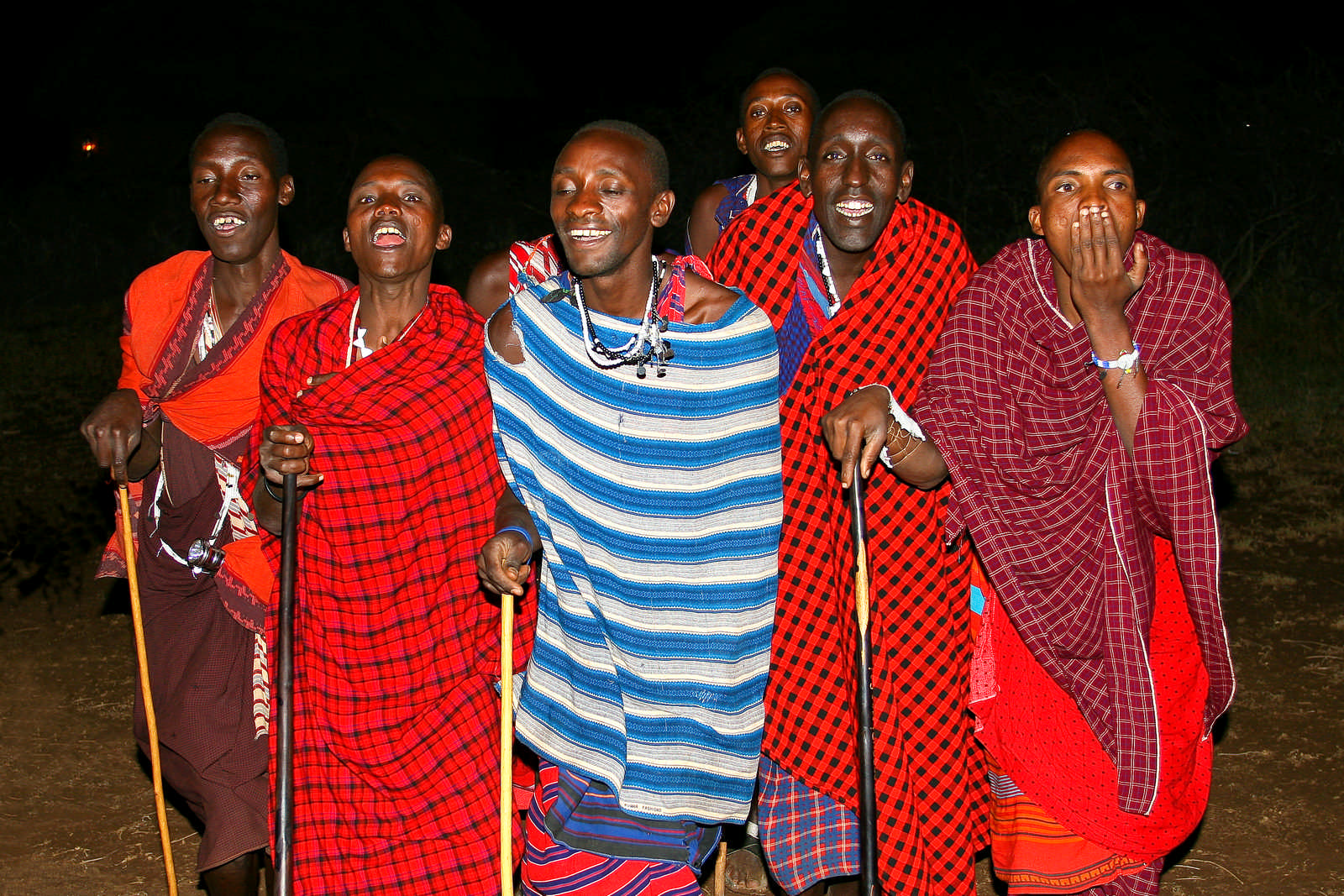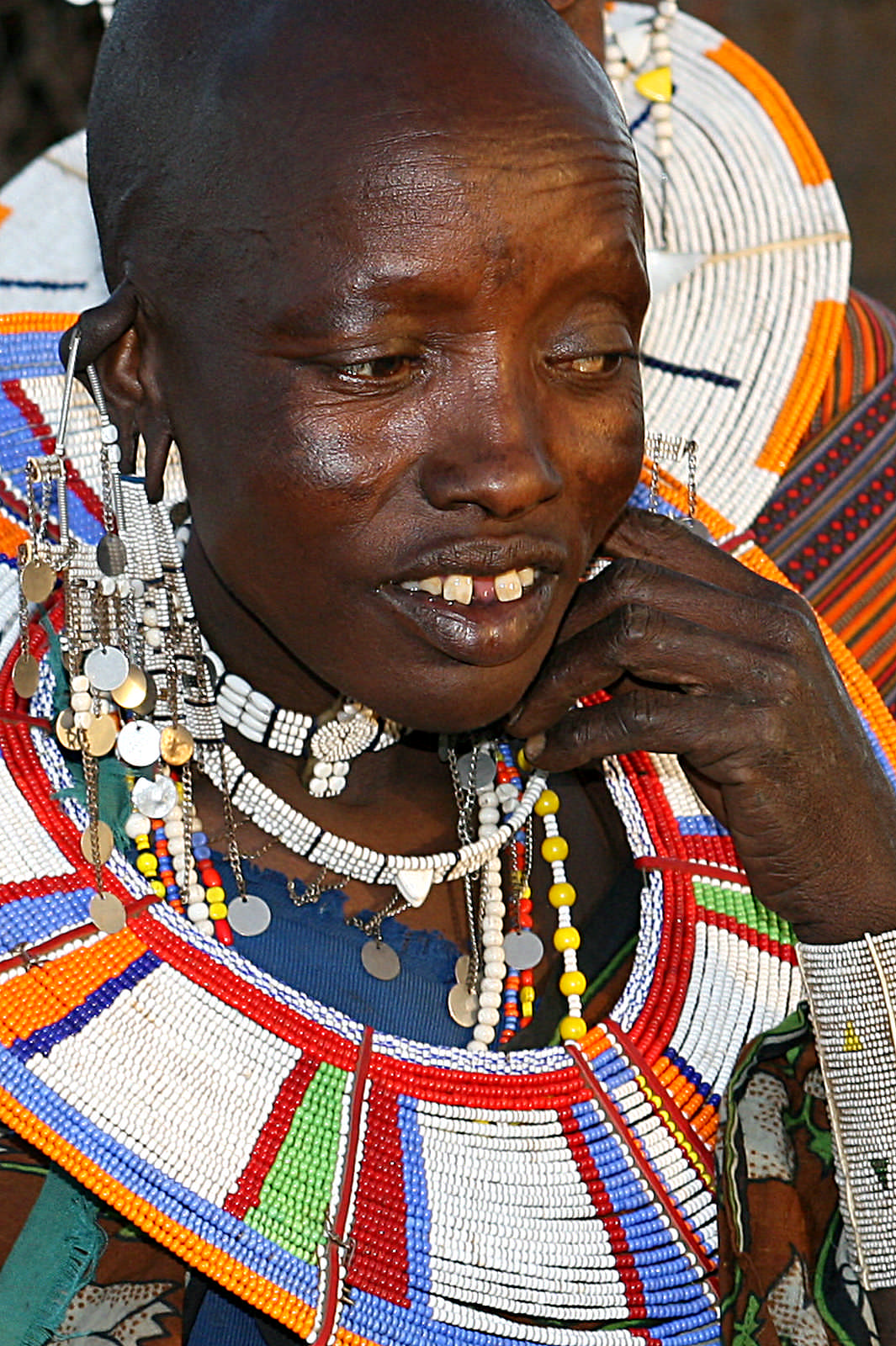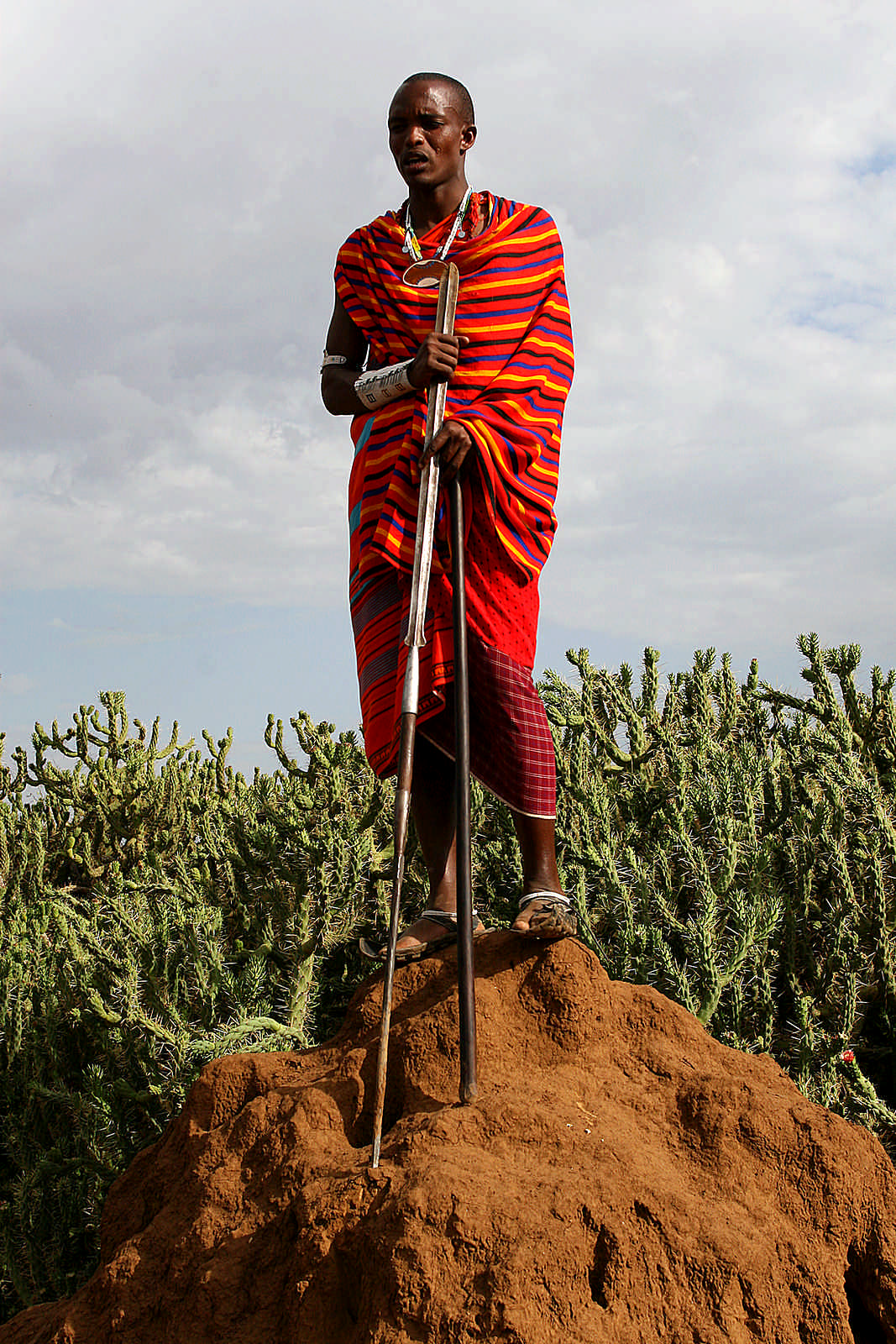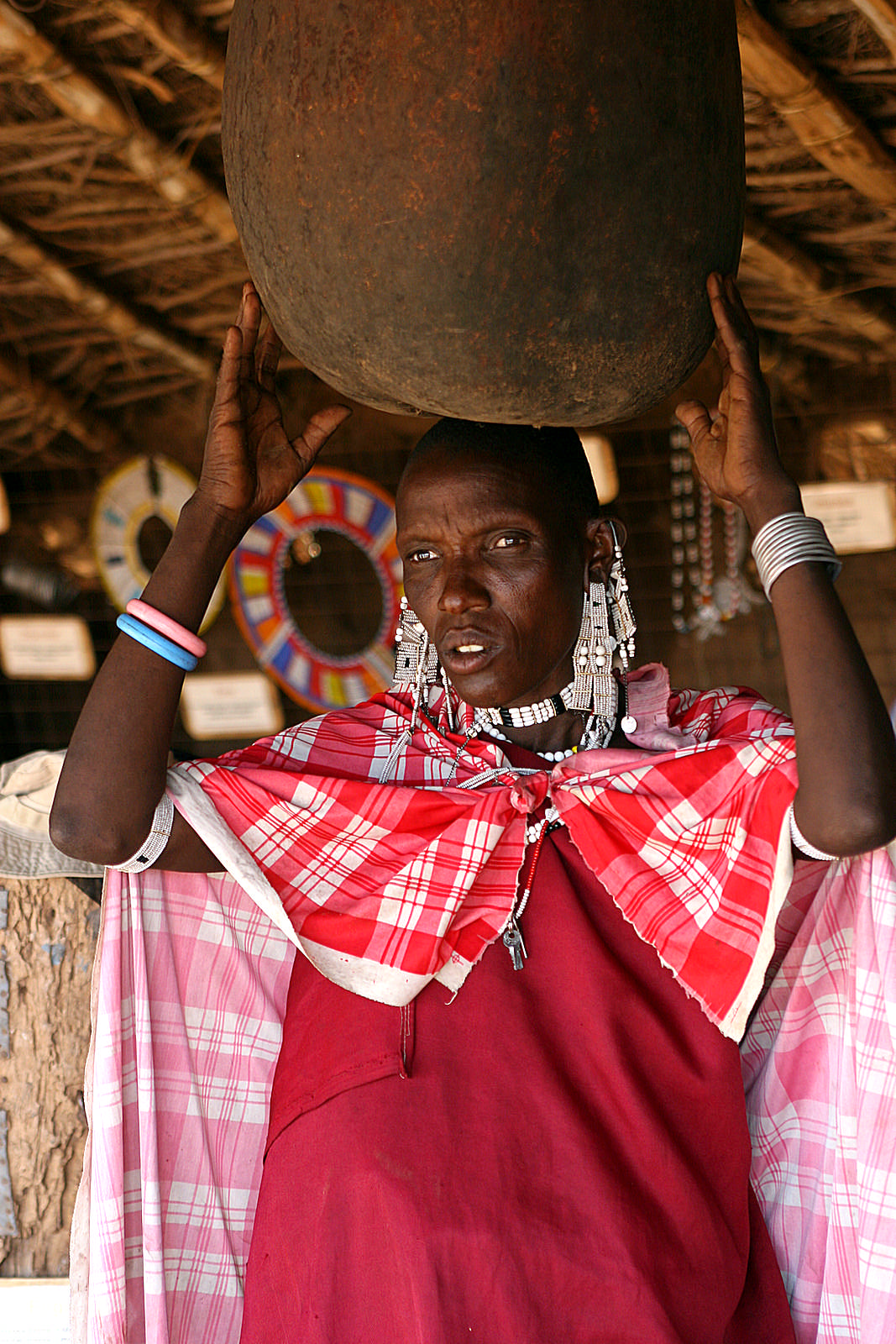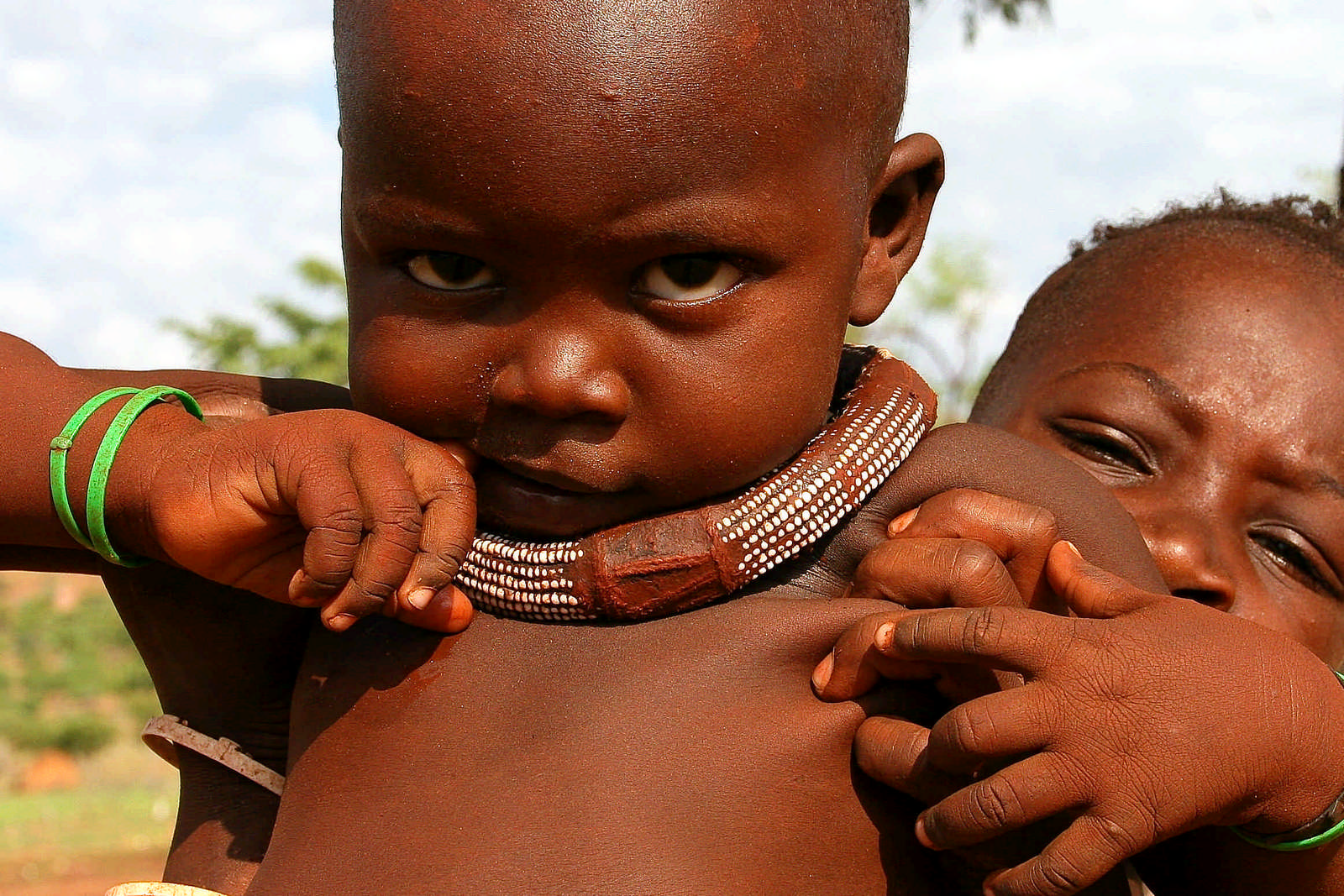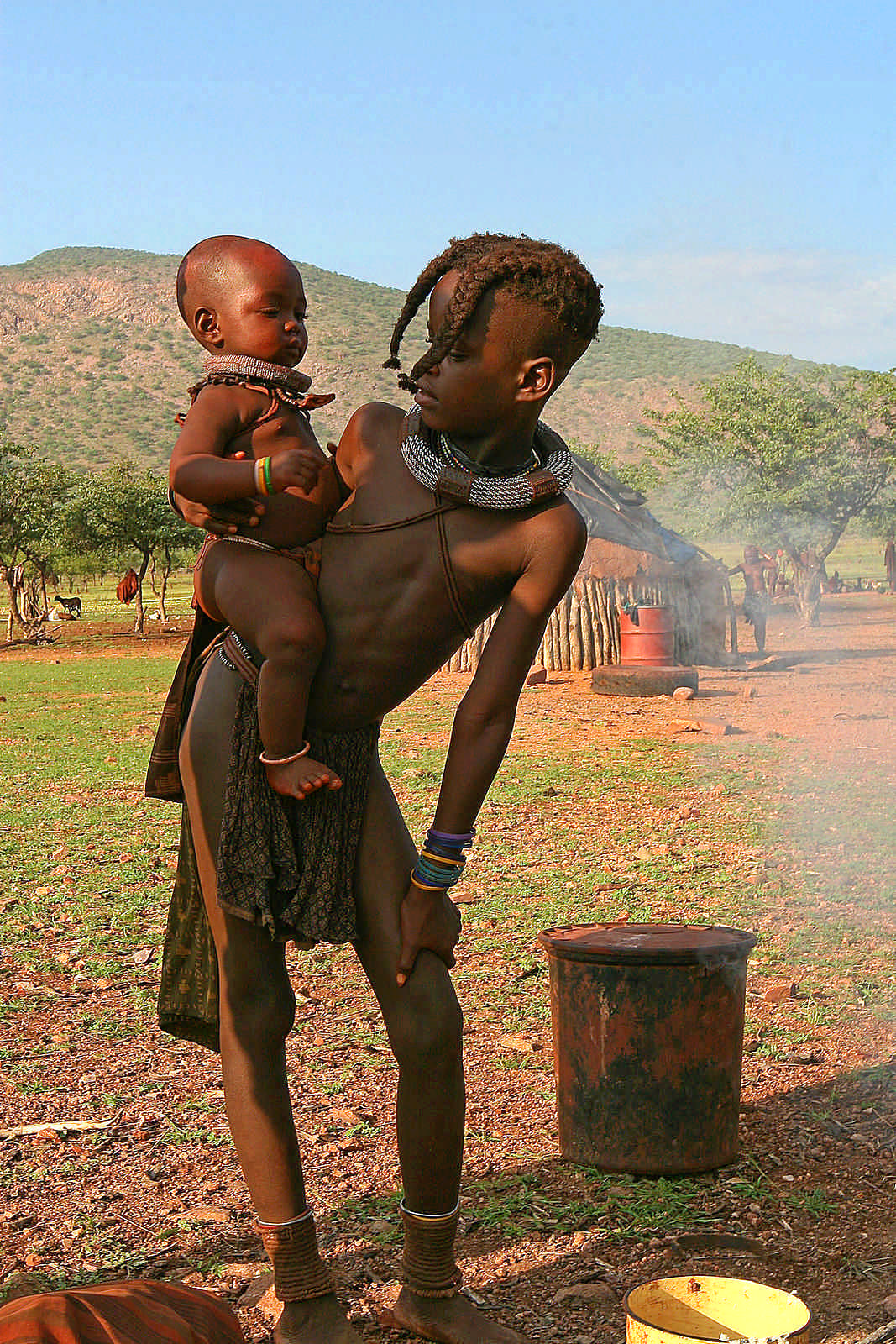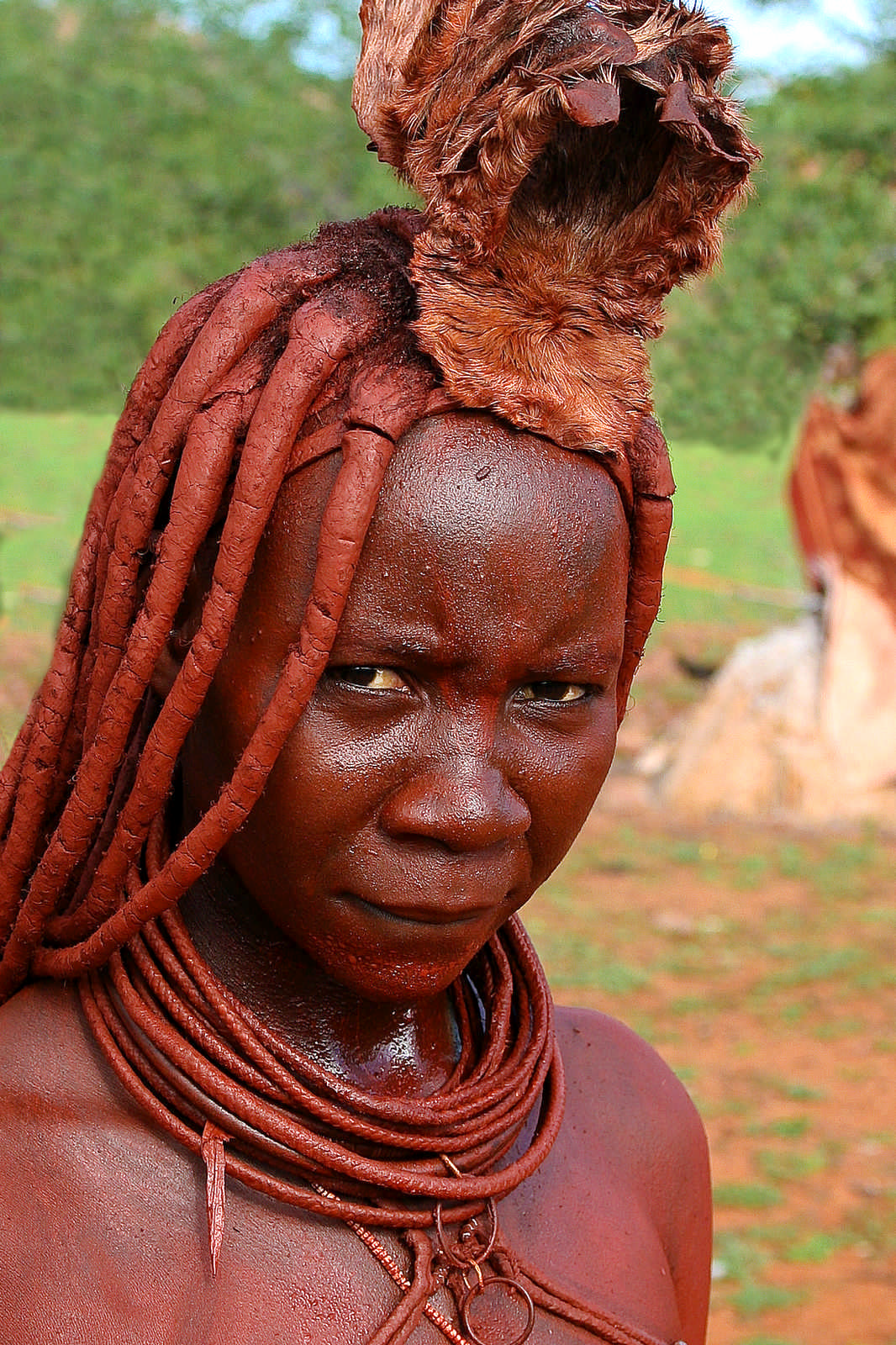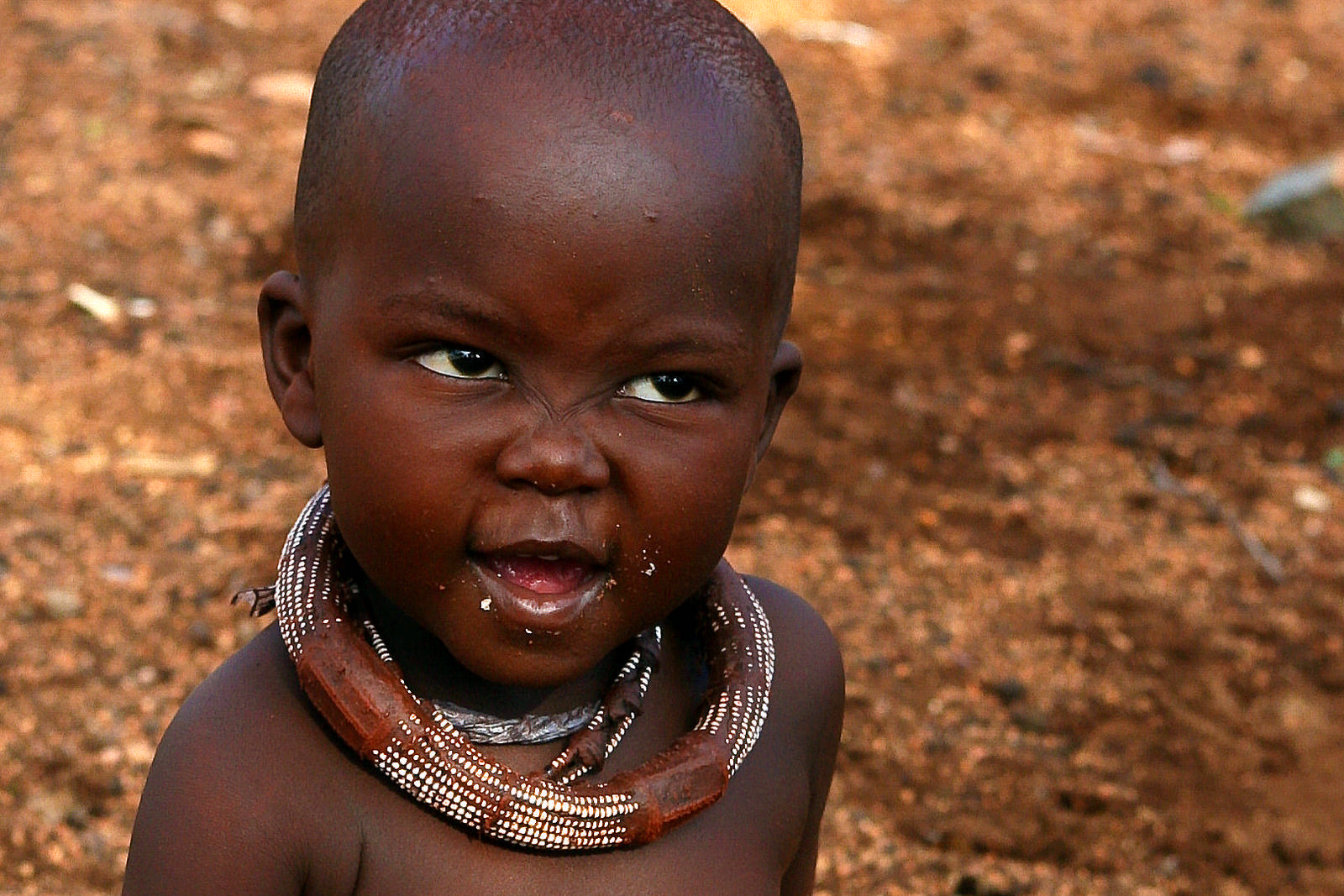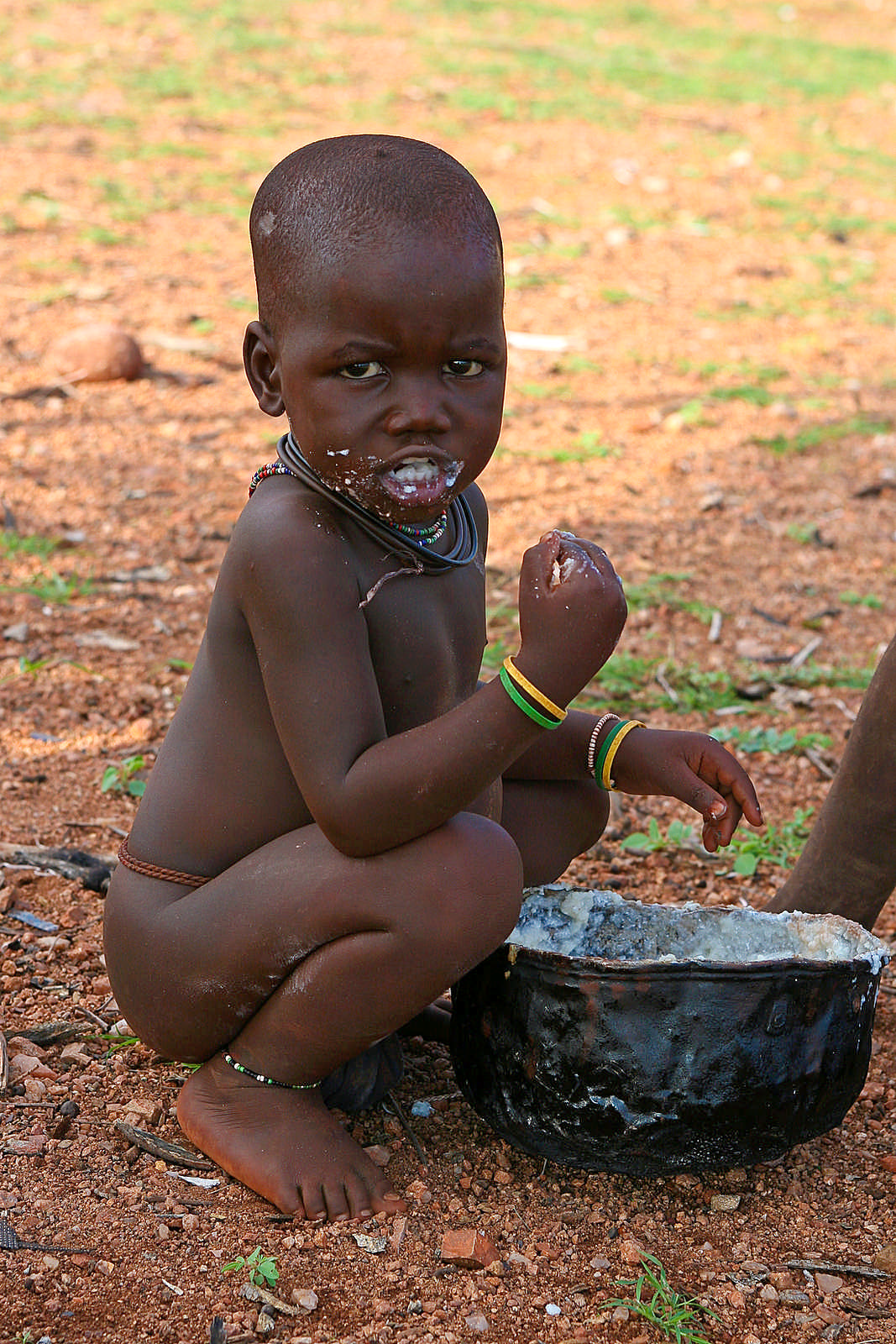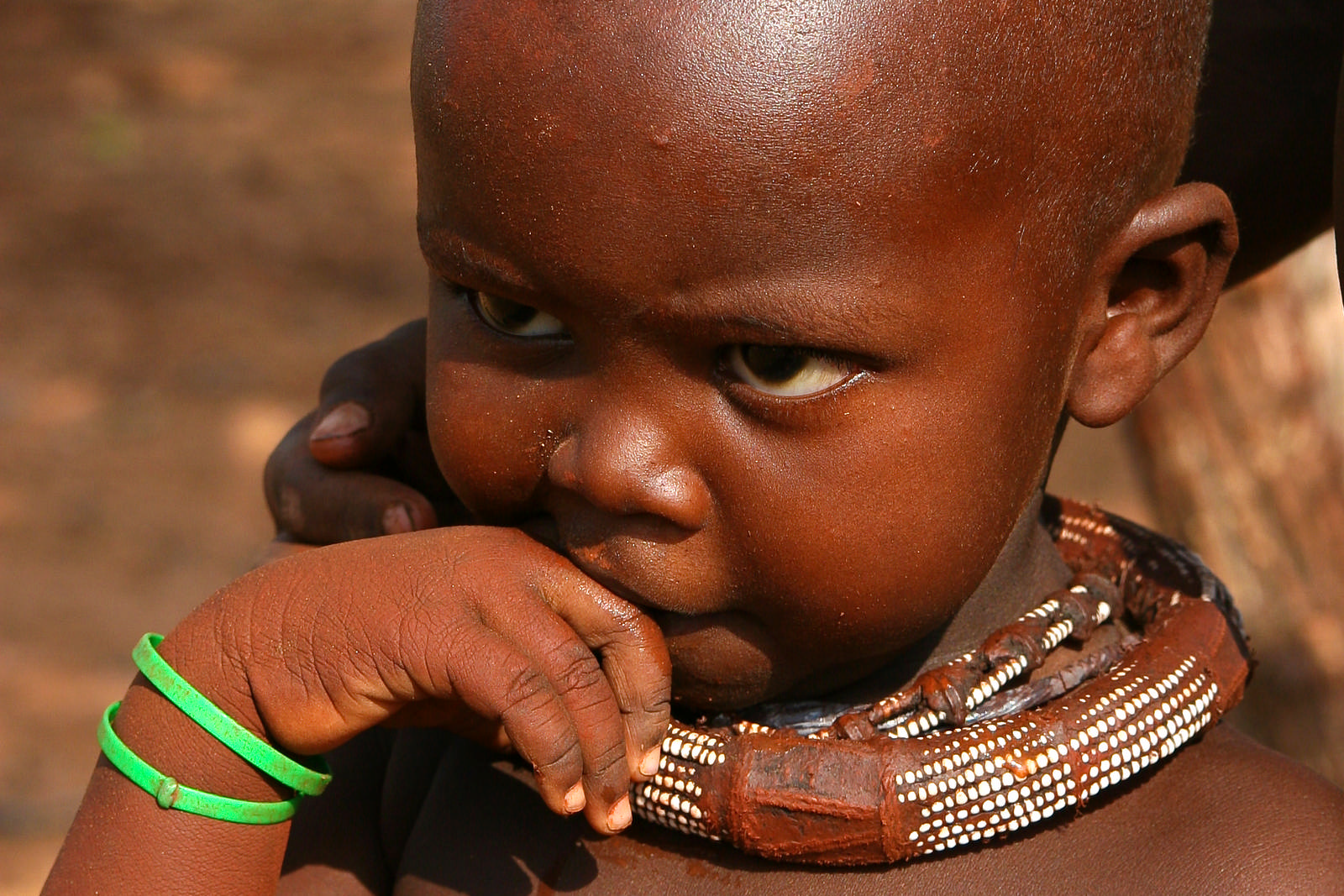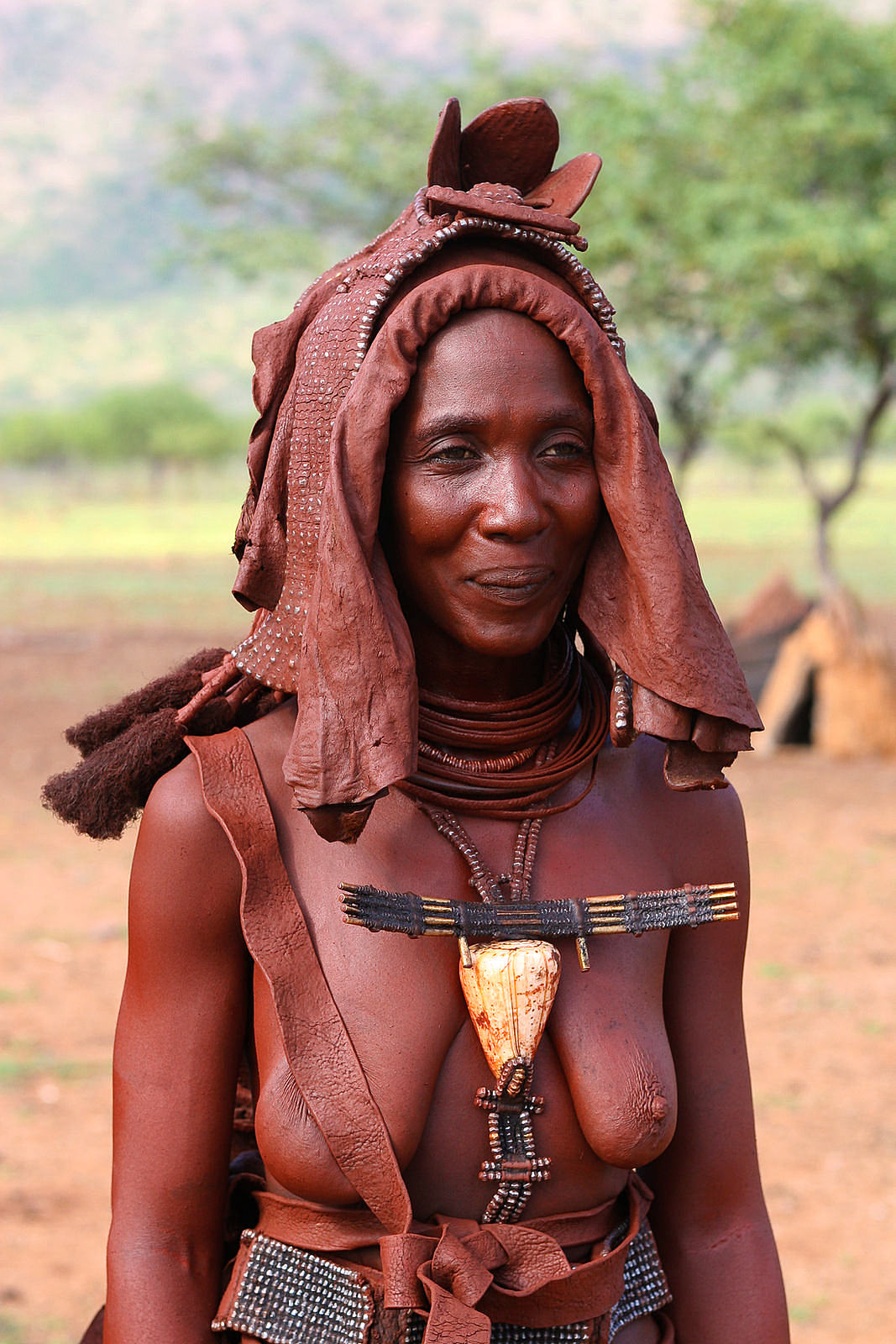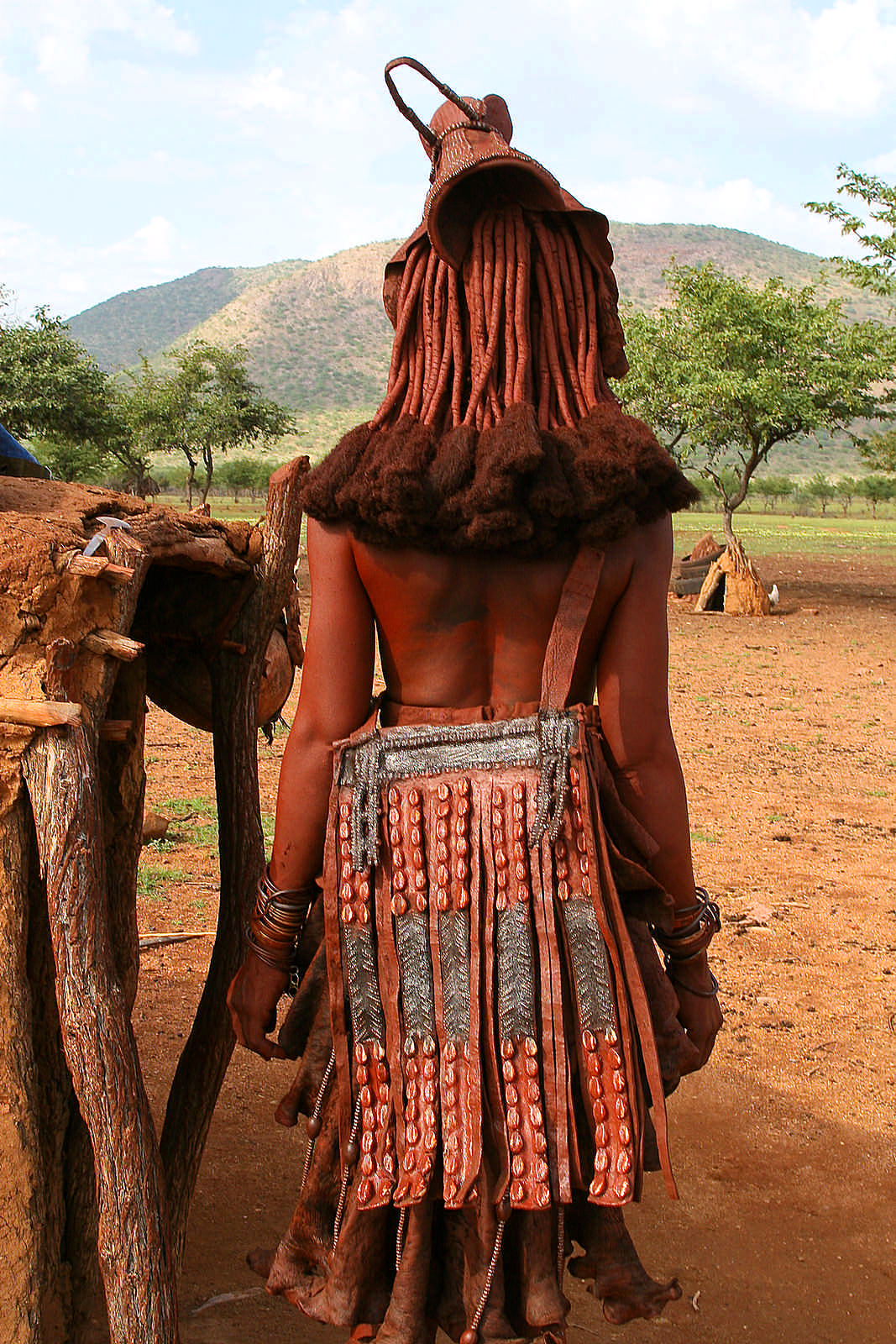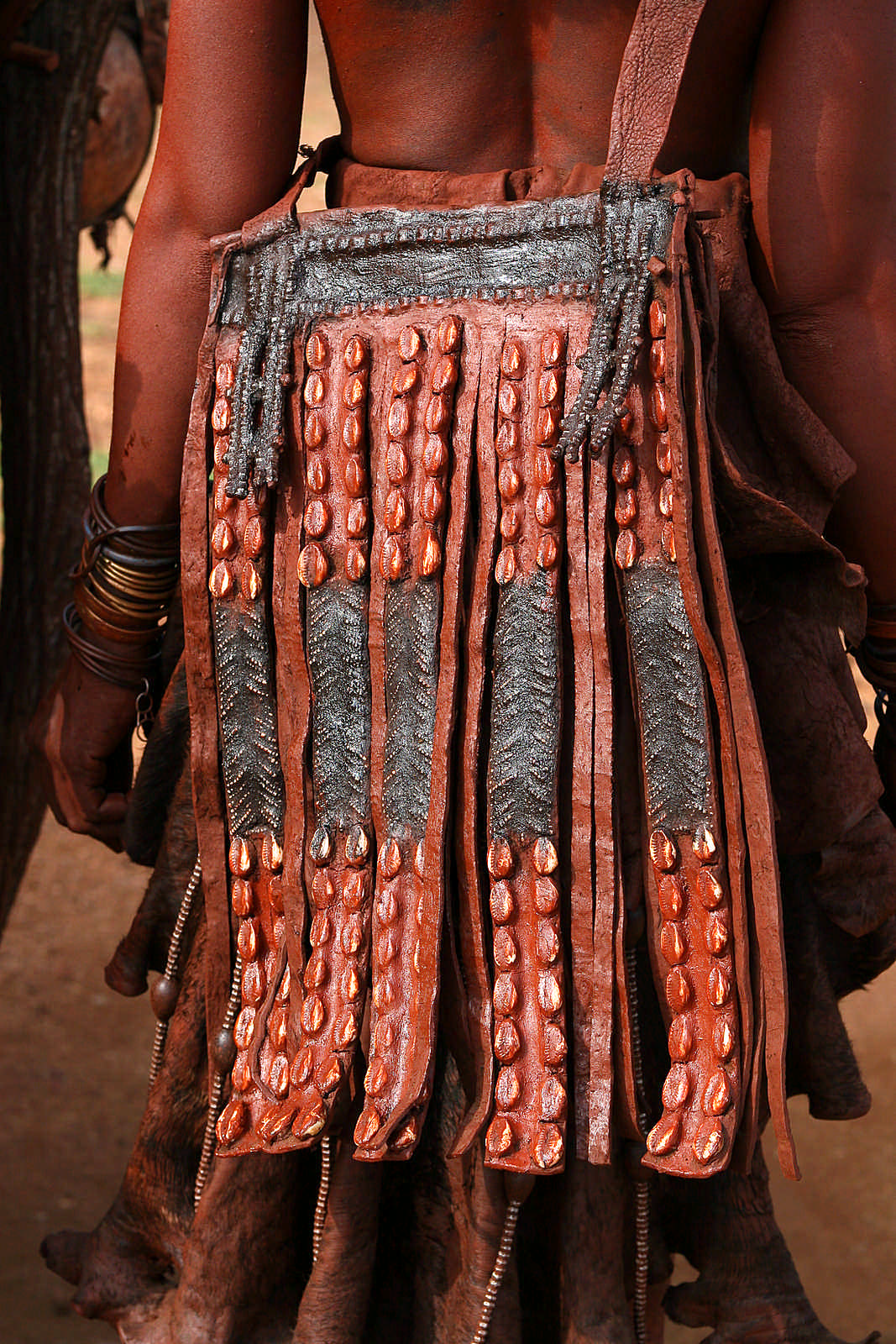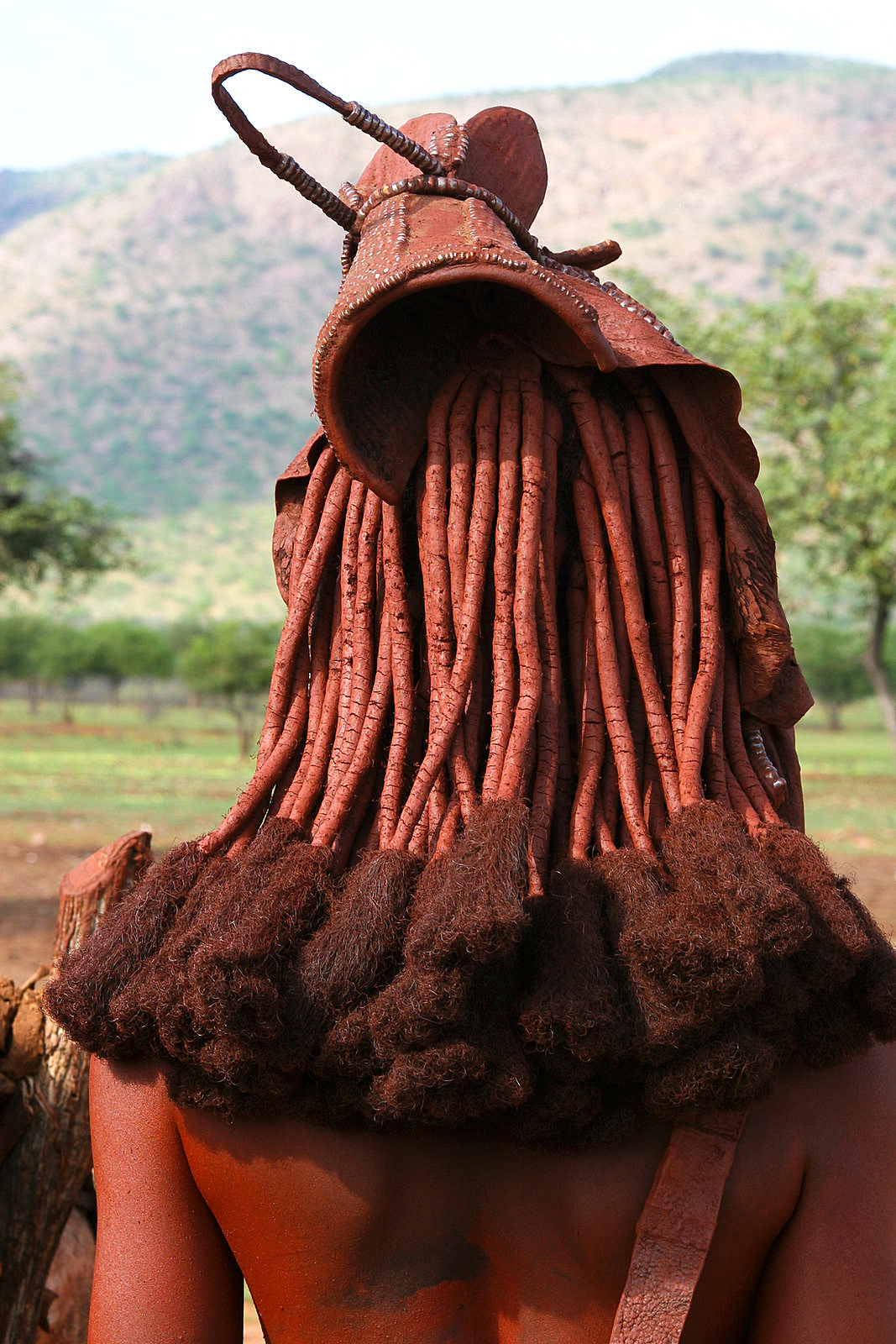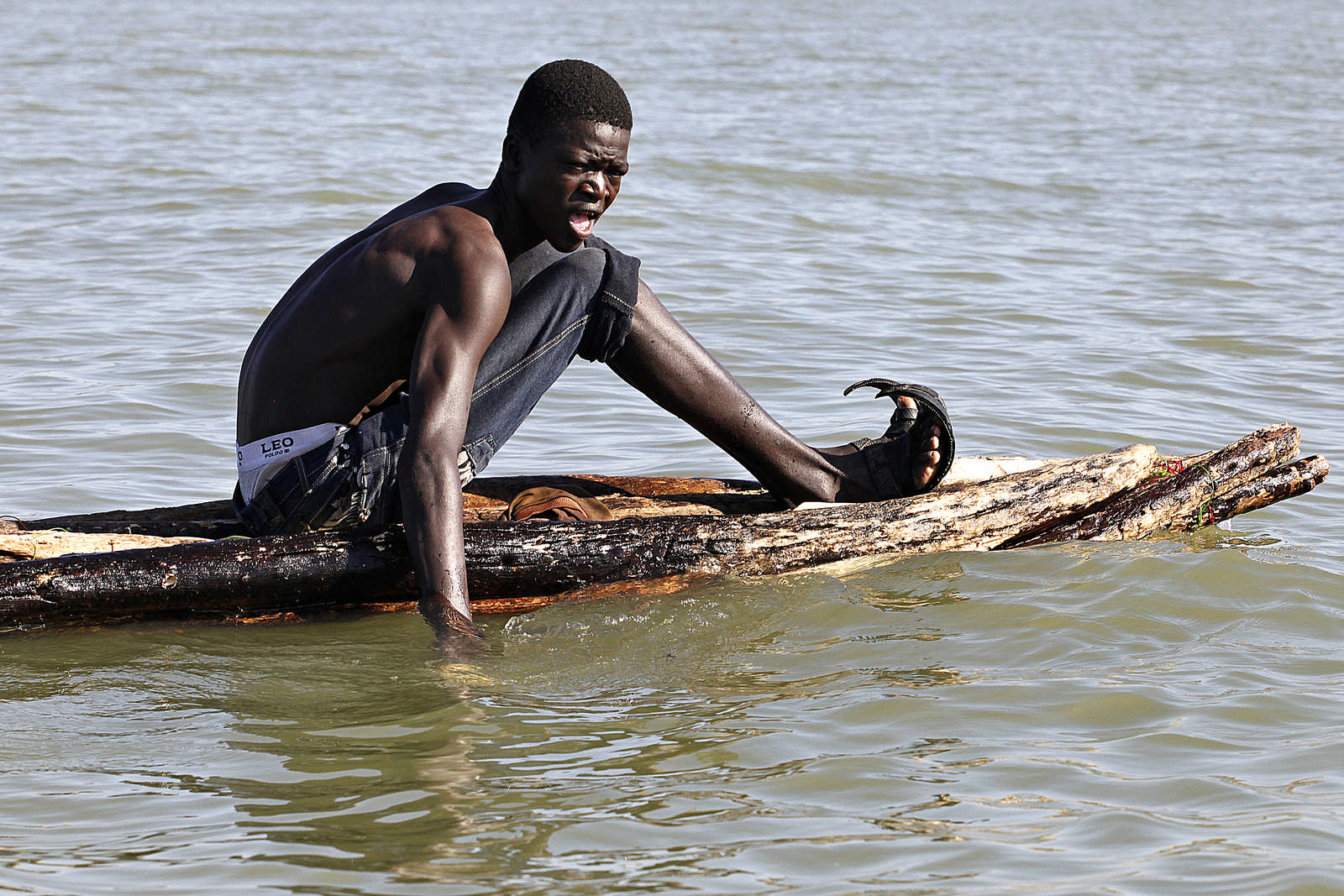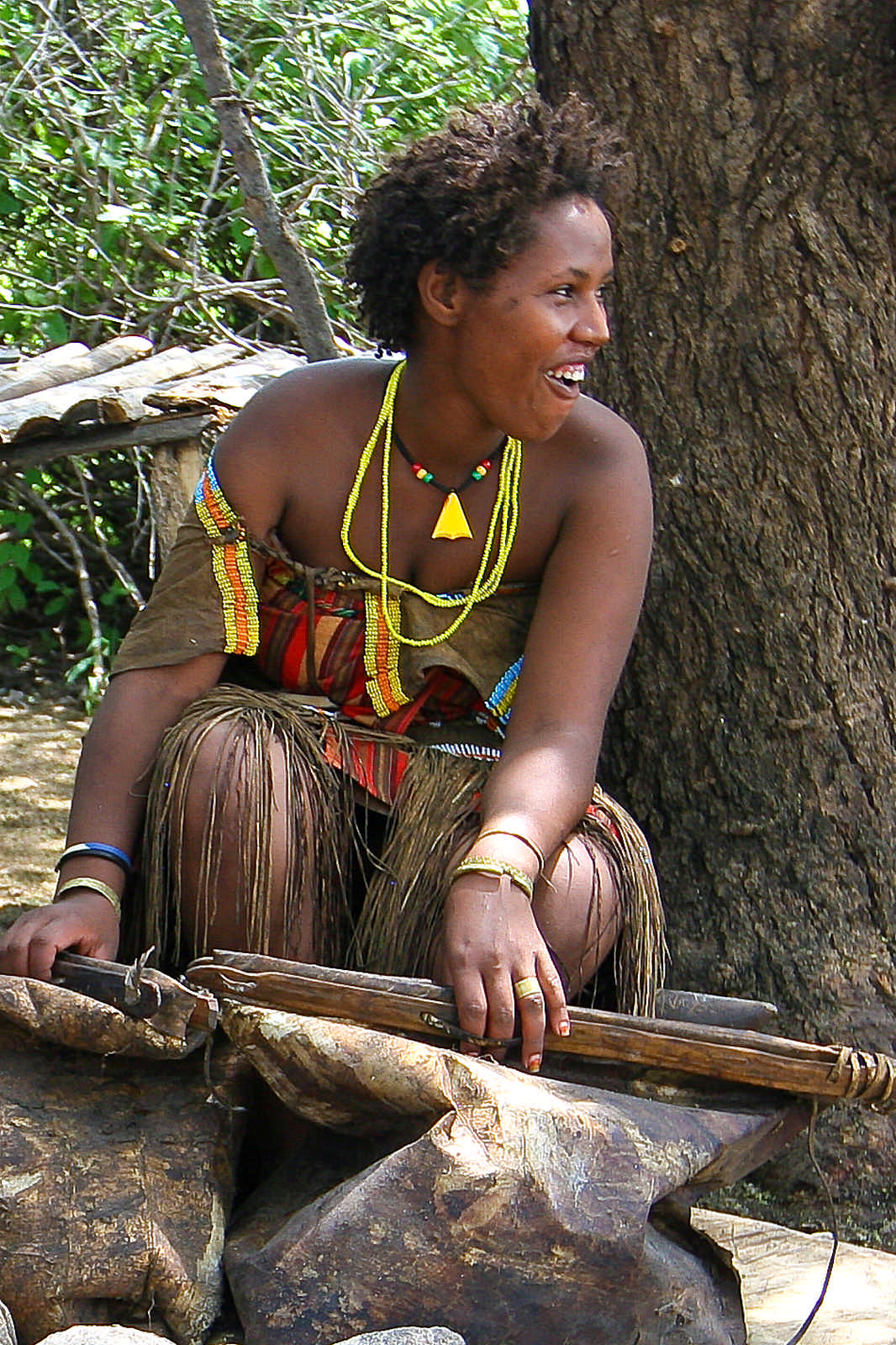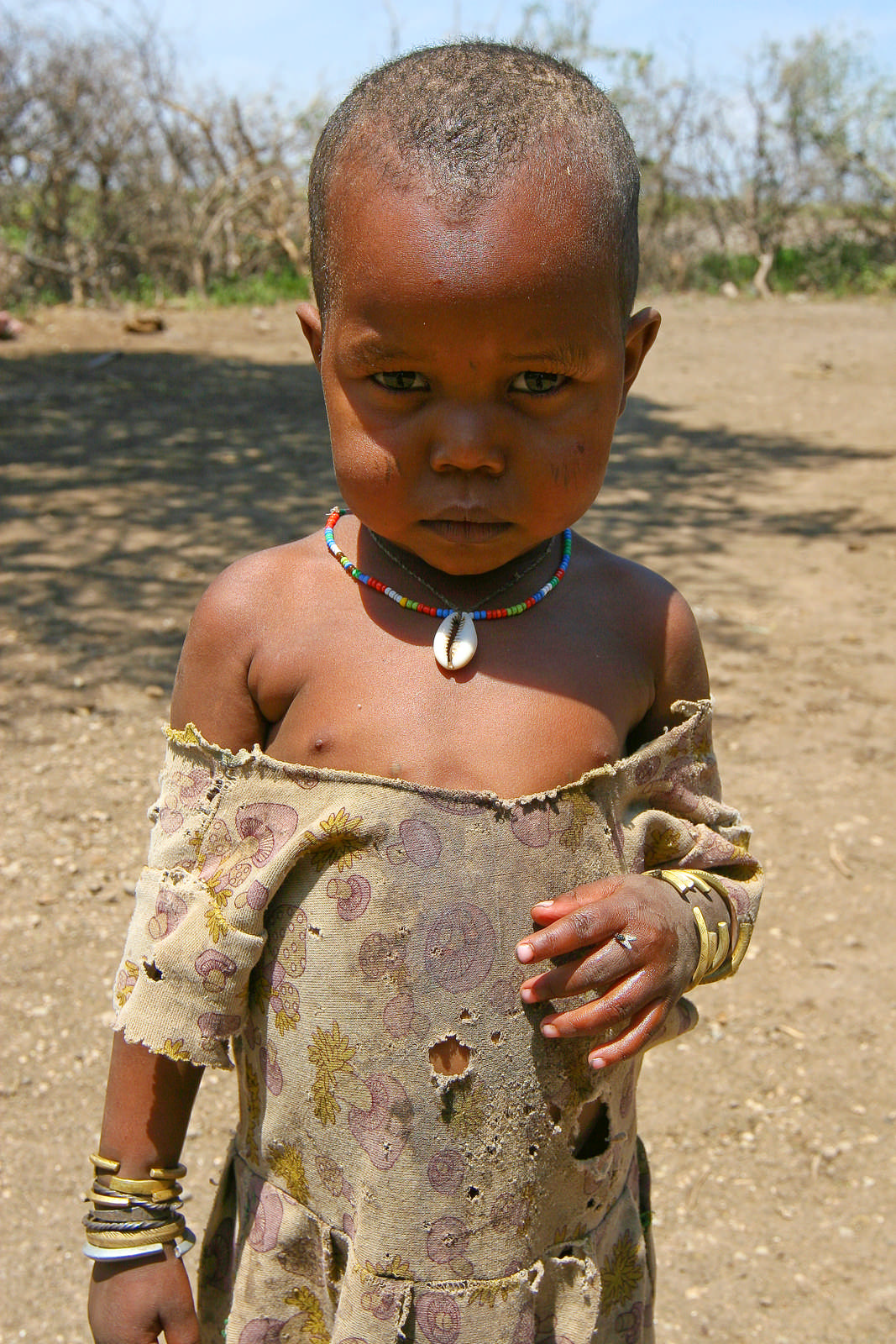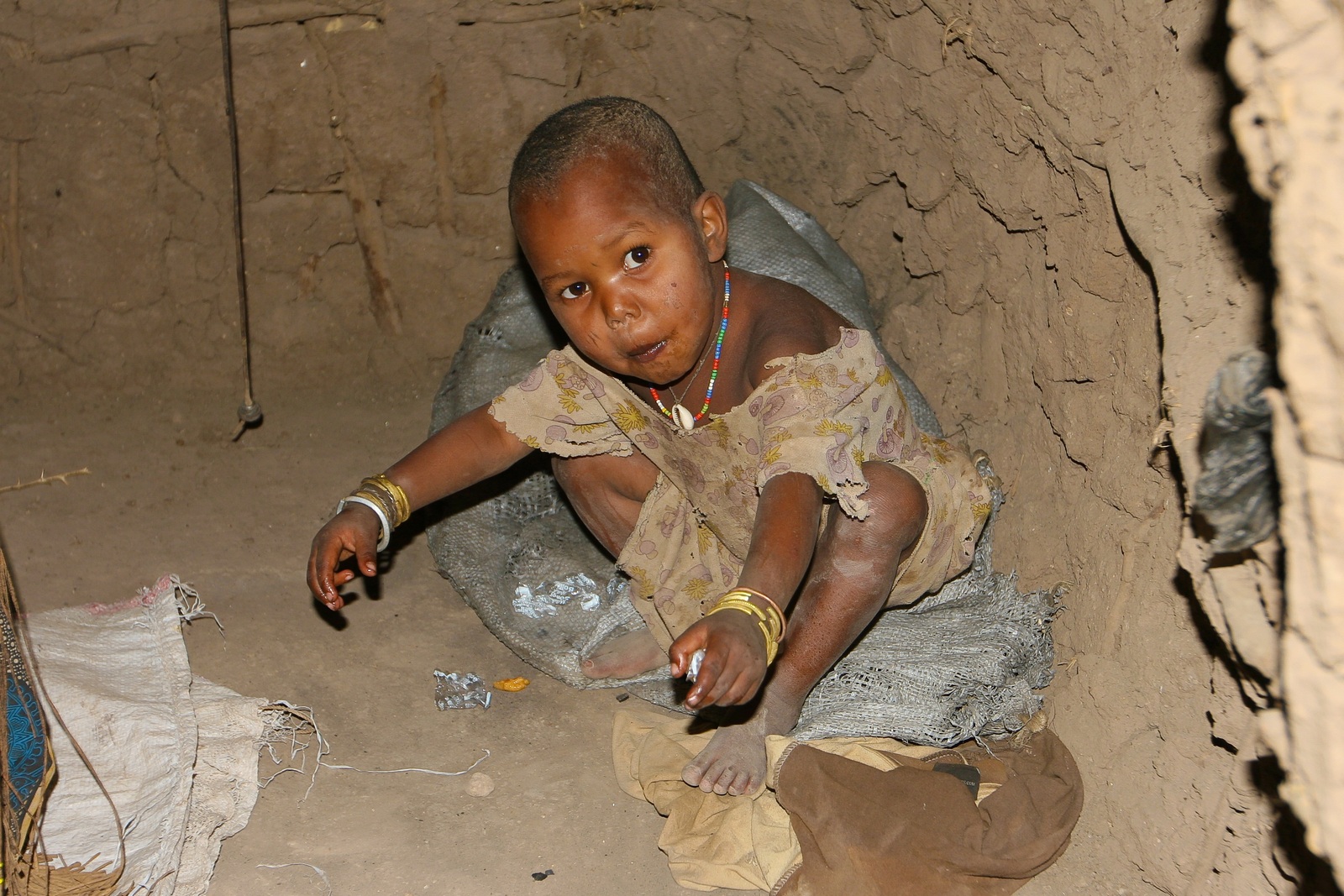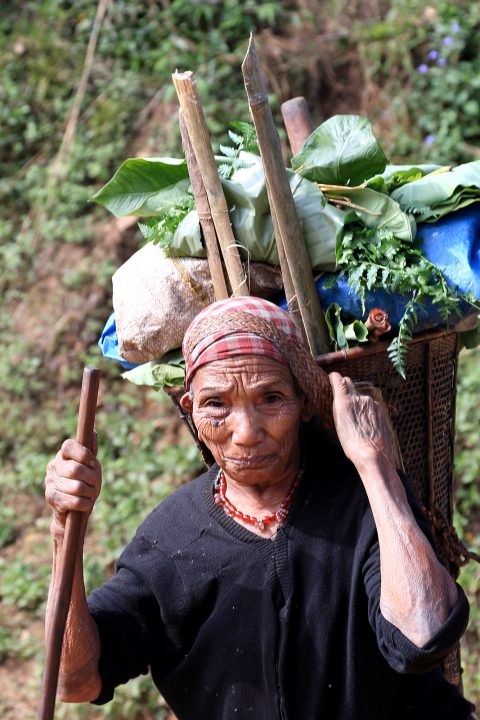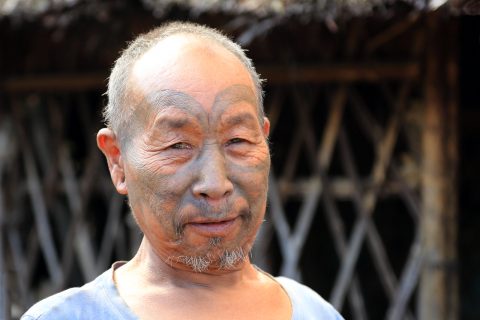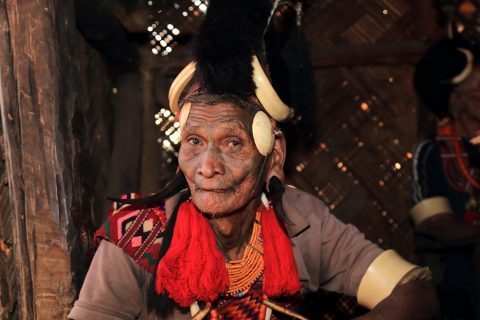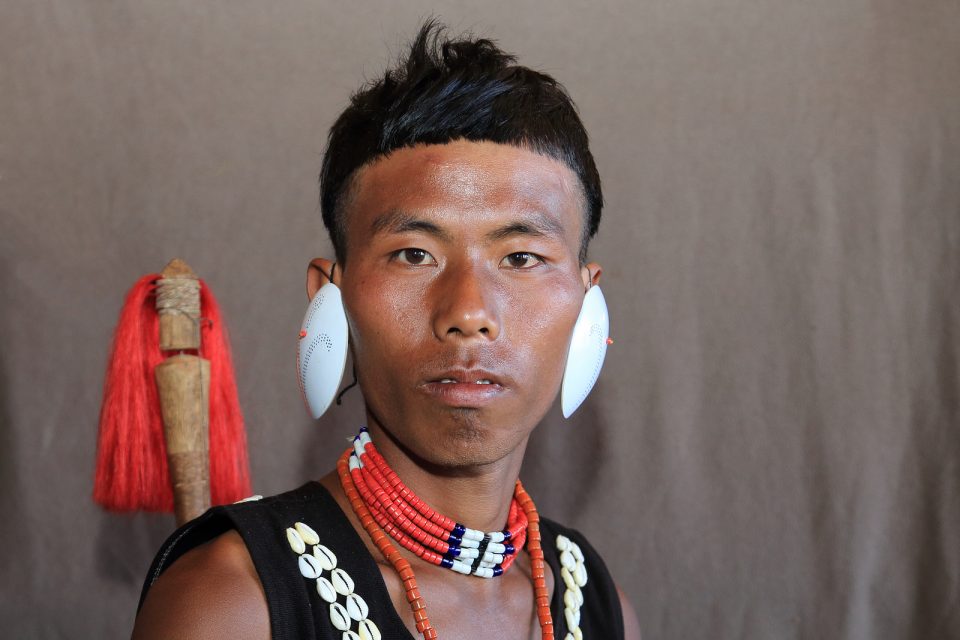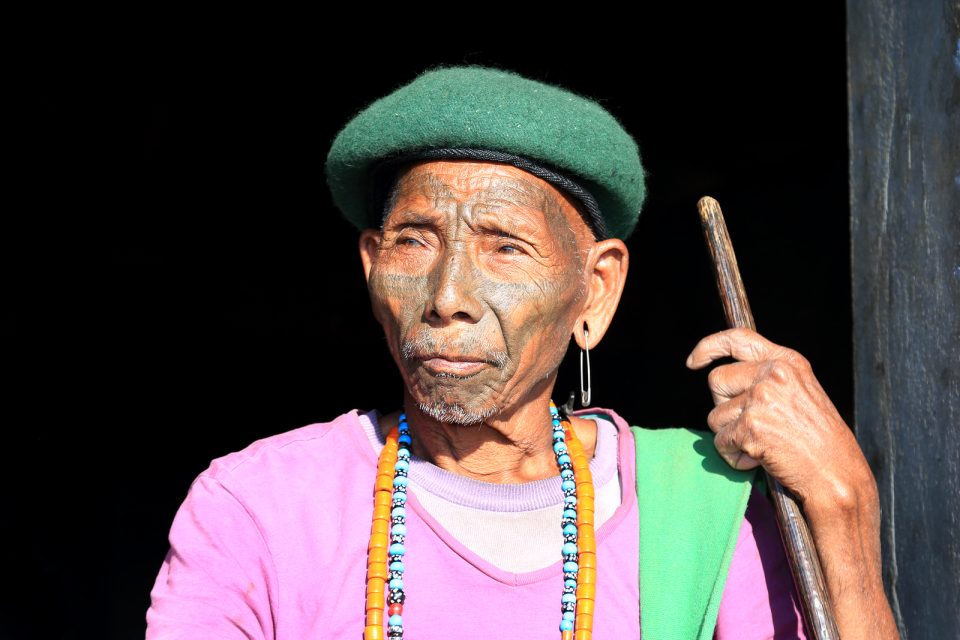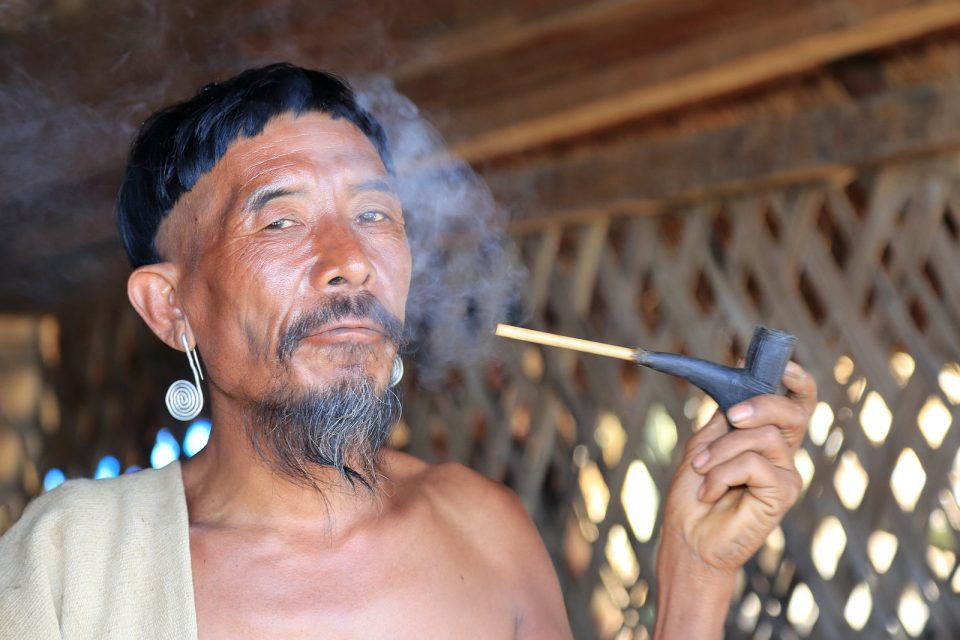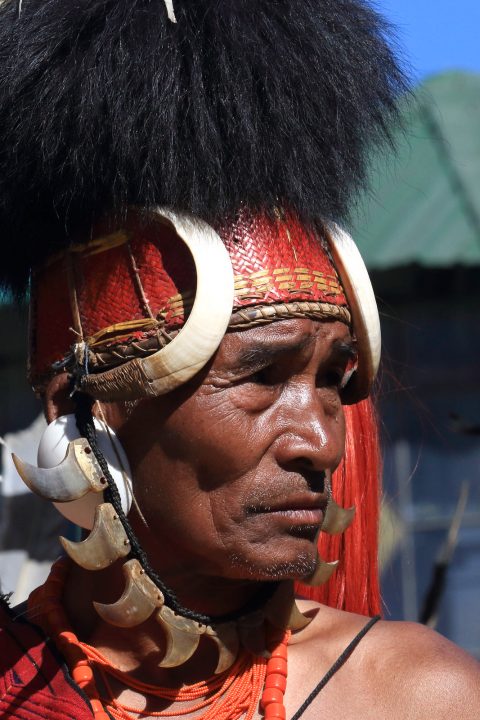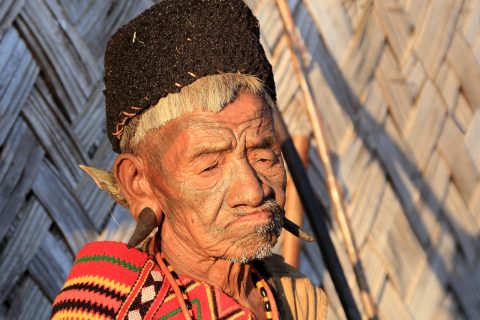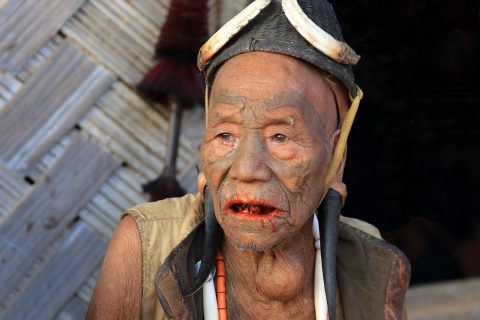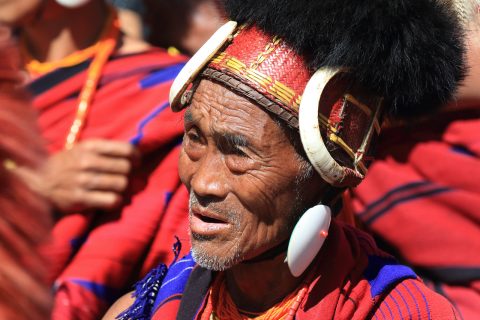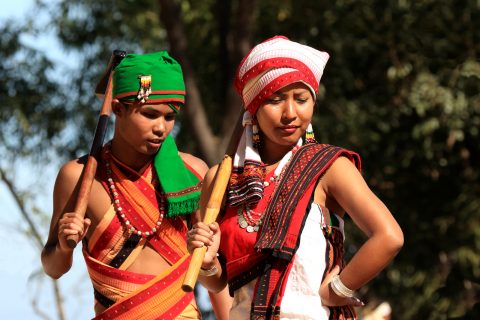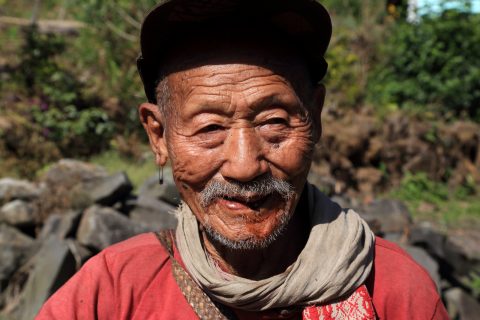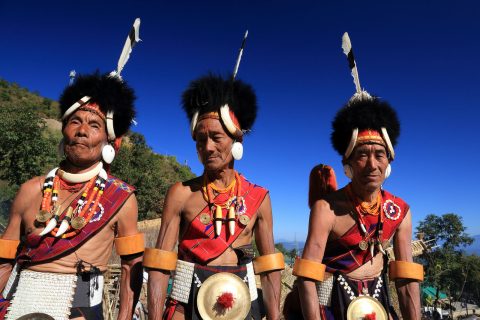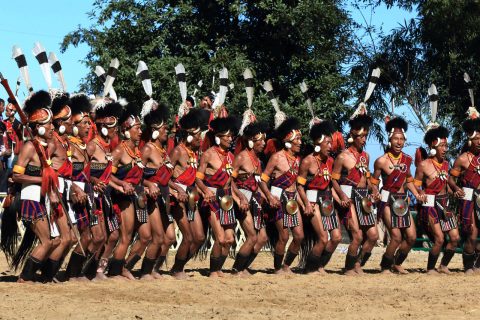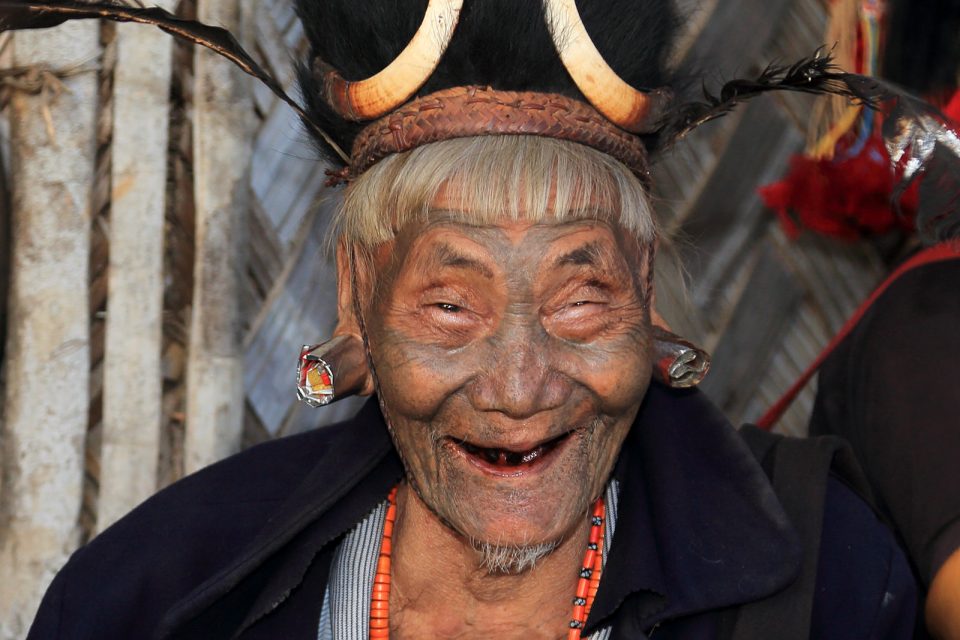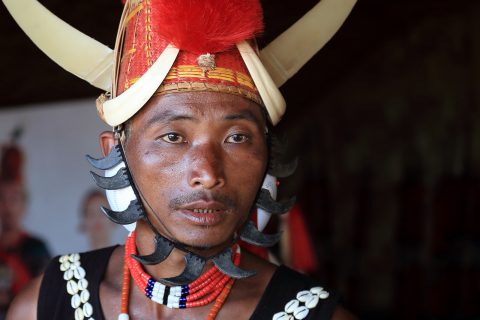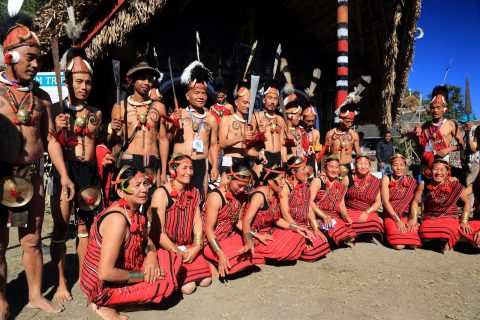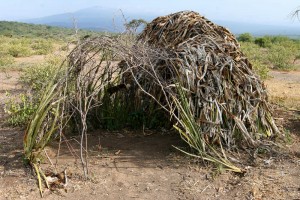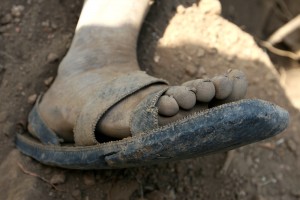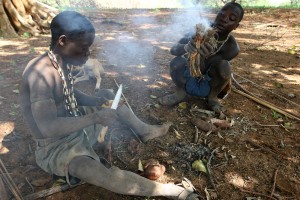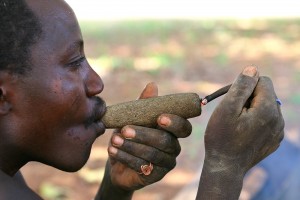When cultures meet, it is often fascinating: We are on our way to the plateau of the Empakai crater, when our guide Amani asks us whether we want to visit the Bushmen on the next day. They live in a small family association of 15 adults with their children, in the middle of wilderness far away from any civilization. On the next day we set forth to pick up our interpreter. Half a meter and around 55kg live weight in modern jeans, a sport shirt and sun glasses. He has to ensure the communication. On the question whether he has lived with Bushmen before, he vigorously denies.
One hour later we grasp his reason for defensiveness. They live as nomads, without real huts and sleep during any kind of weather on the ground. Men sleep on animal skin, women and children on the bare ground. No water, no electricity, nothing. They don’t have cattle and no one can read or write. Even today no child visits a school and even fire making only works by hand method like in the Stone Ages. They eat what they can hunt with bow and arrow, if they shoot something at all. First men eat the best parts, then women and children can have the rest, if the men leave something. In a short time we gather insights into the life of this little community.
When they asked us whether we wanted to join the hunt, we look at each other irritated. Since we are wearing sturdy shoes, we see no reason to decline. It is unbelievable how quick and fleet-footed the men move through the bramble, some barefoot and some with sandals made out of car tires.
At this rapid pace we get caught in roots and stones with our trekking shoes. It is midday and over 30 degrees hot. While we battle nature with bright red heads, 100 meters ahead the Bushmen try to slay birds with theirs arrows (unfortunately a miss is as good as a mile). In the meantime they dig with sticks and their hands for roots and eat them raw. We sample some, they taste like nothing while being woody. We pocket some of the offered roots for the women, since the men only think of themselves. We are displeased by their, for our form of society, egoistic ways..
After one hour we get to a wide, silted river bed. On two points, two big holes gape. At the bottom grey-brown groundwater gathers. One of the Bushmen lies down on his stomach and pushes his torso towards the water, to drink from it. We are offered water too. Our small interpreter tries to explain, that we would get sick from the water. We look at uncomprehending faces. In return we retrieve our plastic water bottles from our backpacks.
Next we rest under a big shady tree. We spoiled Central Europeans are thankful for that. One of the nature boys conjures up some roots, lights a fire and rolls the roots in it. Then they are peeled.
After they ate all roots, we provocatively ask where the share for the women and children is. Impassive looks. A different world. We enjoy the shady stay under the expansive treetop and watch the men smoke some kind of herb. A short time later their gazes change, the eyes bloodshot. We have a sense of foreboding. Certainly organic, certainly nature. Certainly a drug.
On the way back our facial skin gains experience with a special kind of acacia. This one has thorns with barbs. Self-liberation is pointless, help is more expedient. Damaged we reach the rest of the family. Surviving in nature has to be learnt!
Thankful the women accept the roots from us and palm them. Comfortable we sit together for a while. We are allowed to ask the men questions. Our half meter interpreter eagerly translates. We ask the men whether they have questions about us. And then: Weather in Germany (wherever that lies) the dik-dik hunt (smallest antelope type) is as difficult as here. Baffled looks are exchanged between us. We did not expect this. Good advice is now needed. We answer that we do not have to hunt our animals on our own, others hunt for us. The part about supermarkets and freezers is left out. The men are visibly impressed. An unusual day in the midst of nature ends for us and we agree that this encounter is the most pristine. Even many of the young Maasai have new phones, know how to drive a Jeep or an Enduro motorcycle. They know the advantage of school education even if they wear traditional gowns, hunt with a spear and only feed themselves with what nature has to offer. Here among the bushmen traditions have not met modernity.

